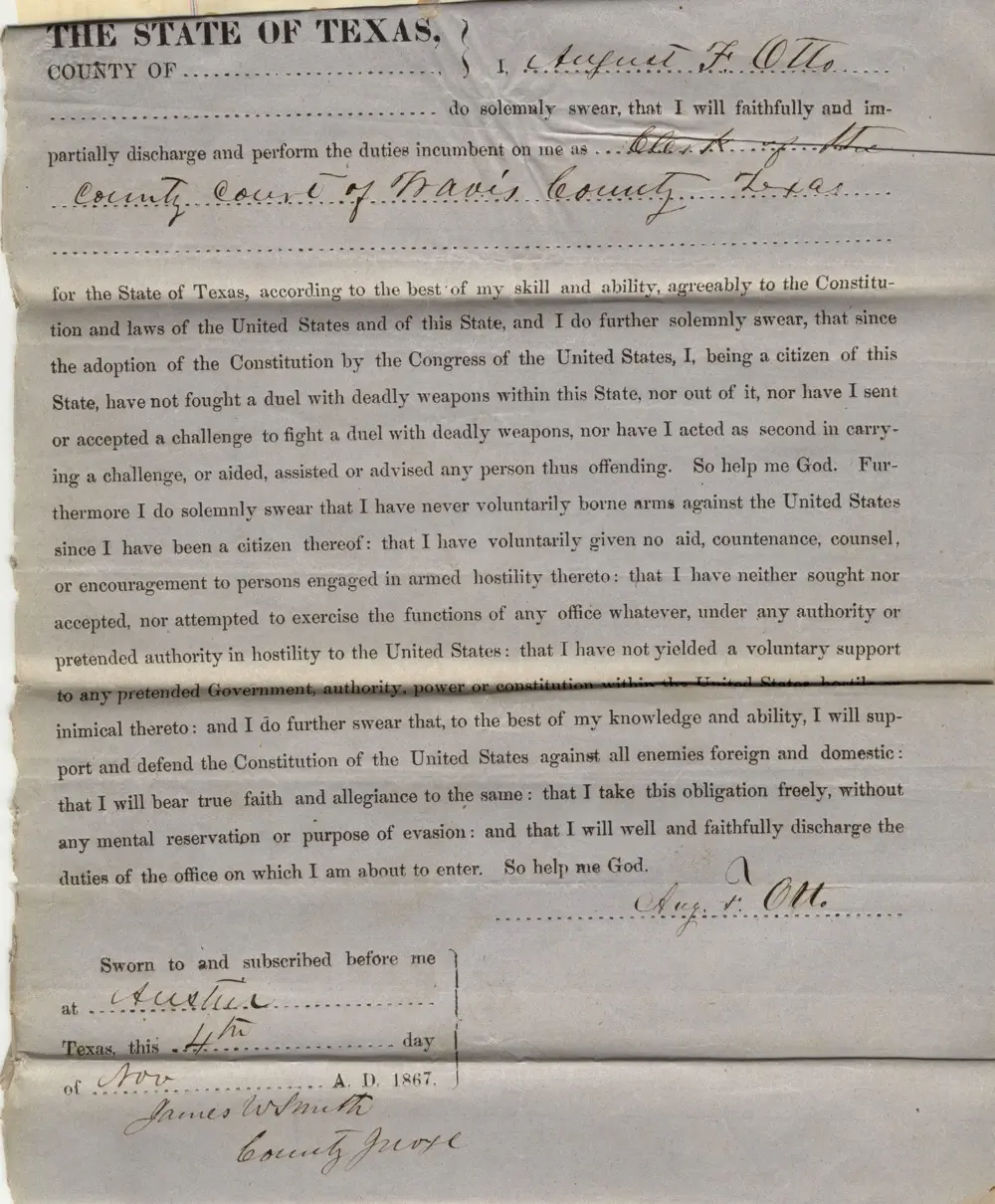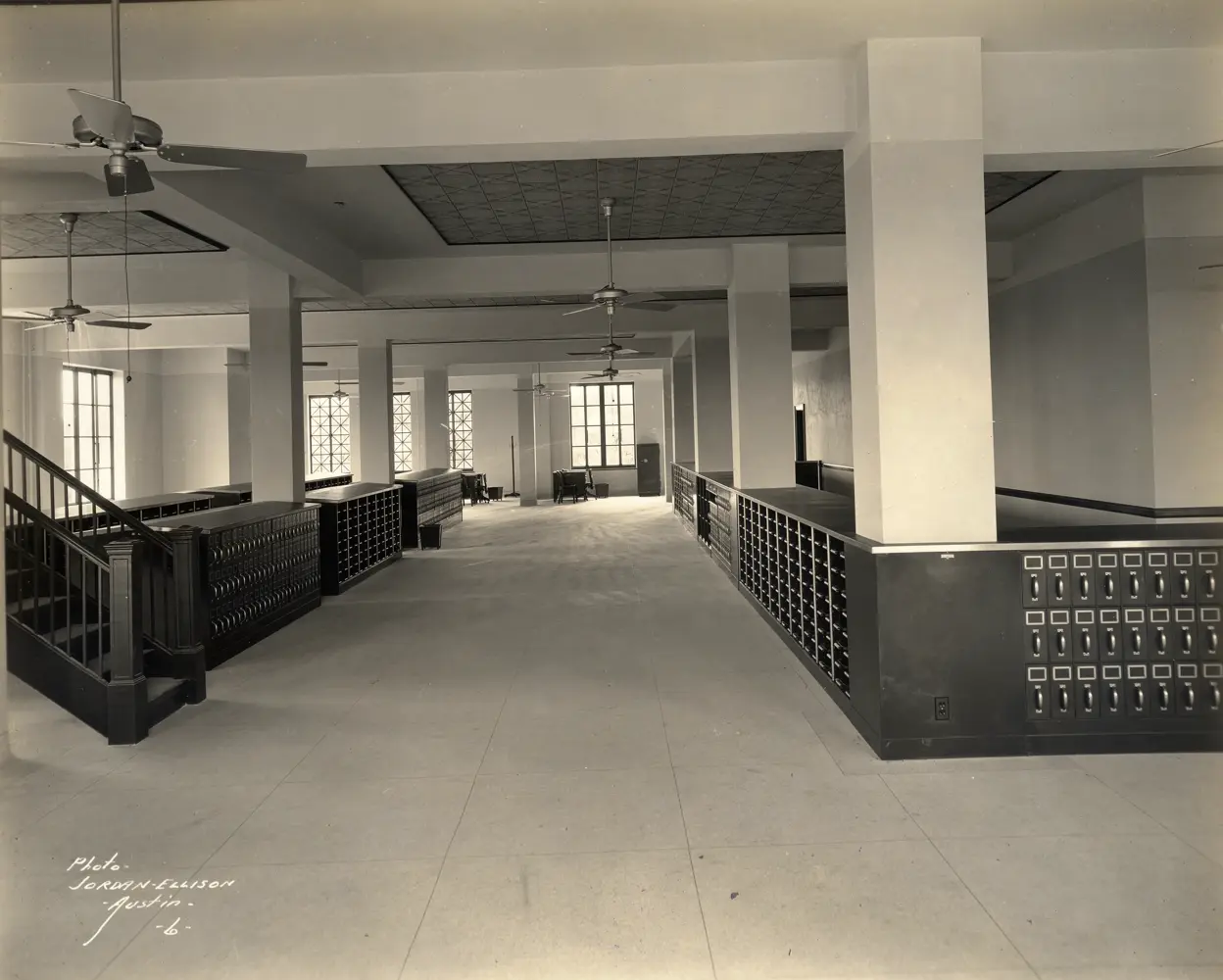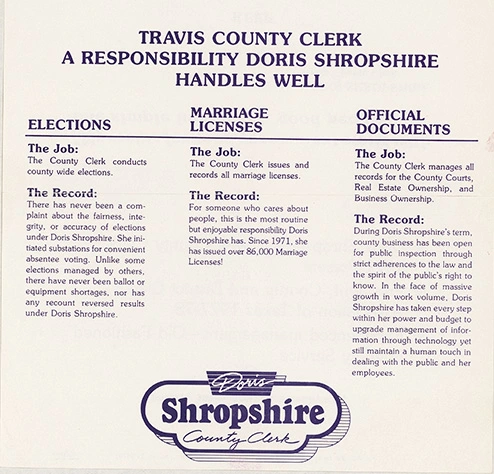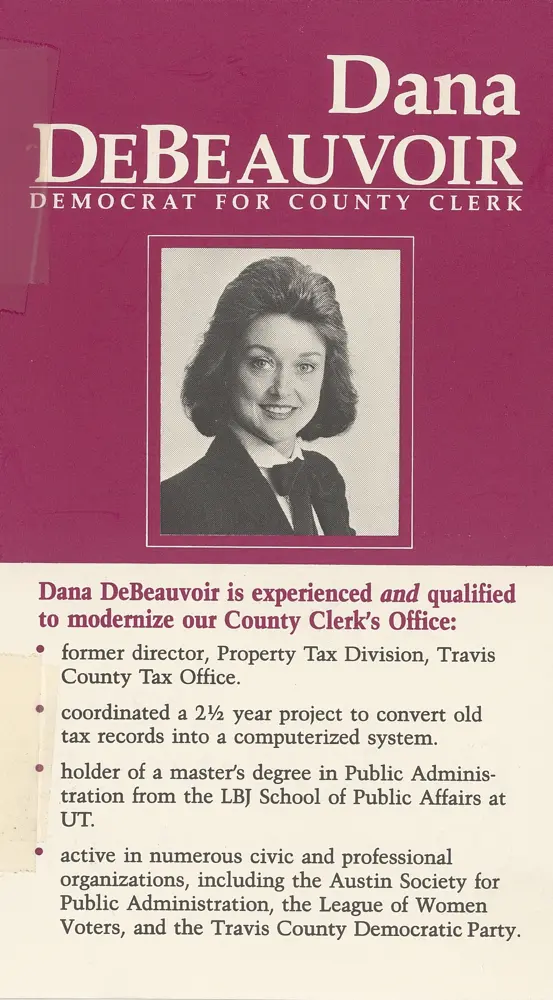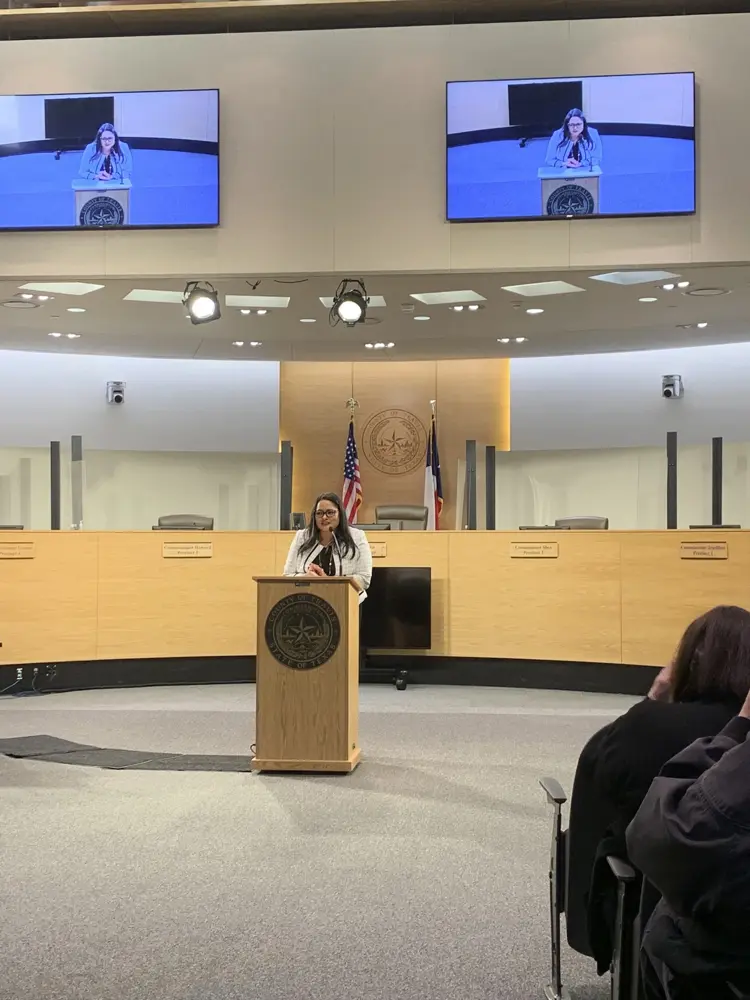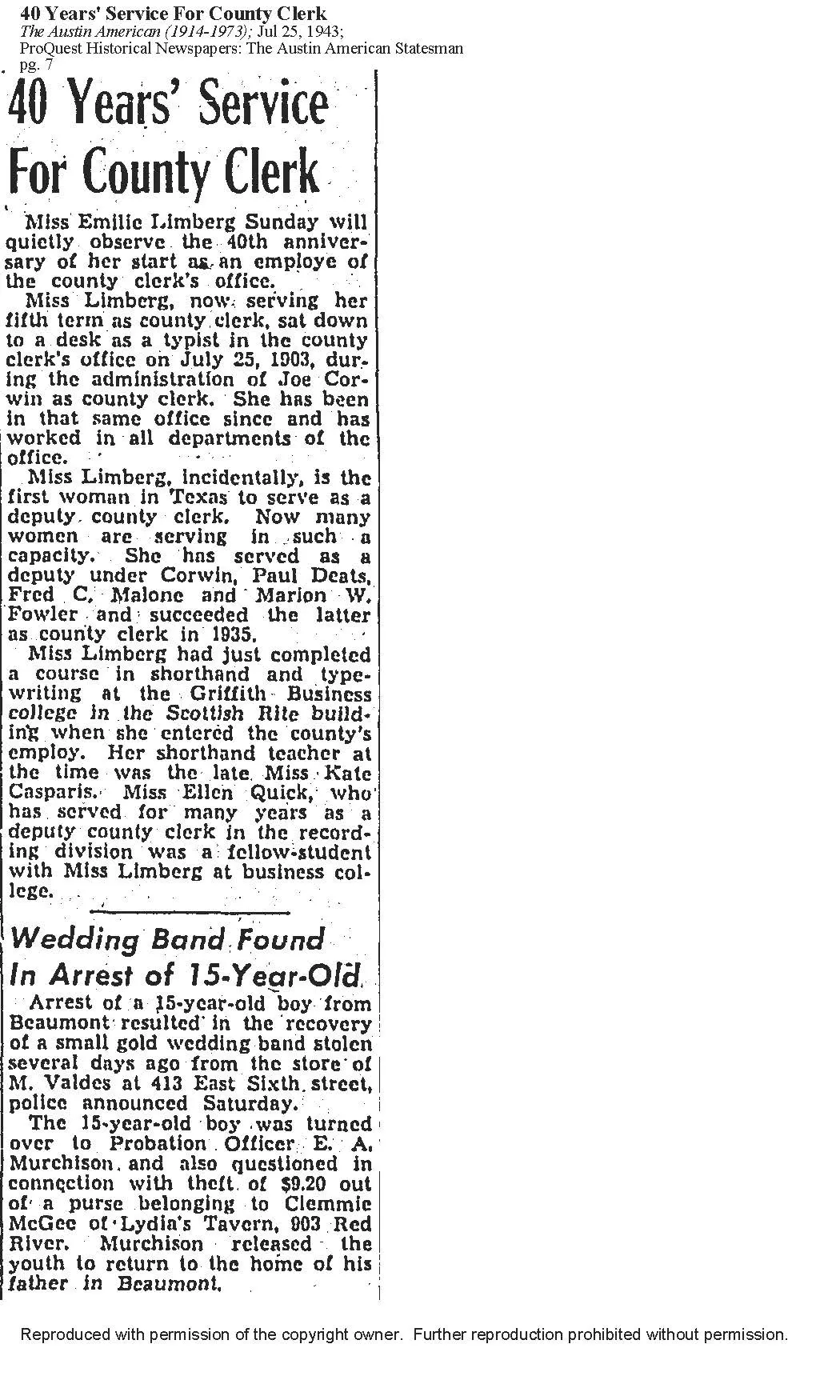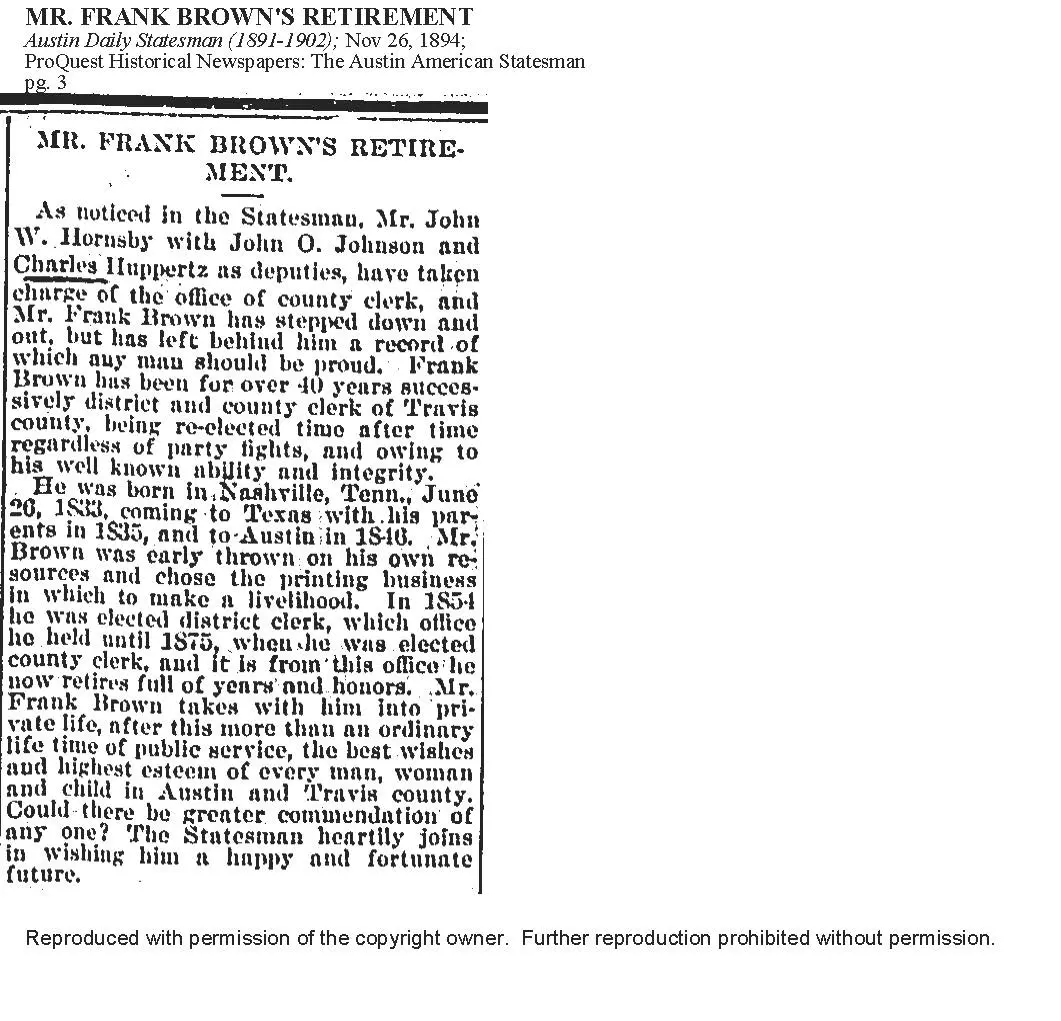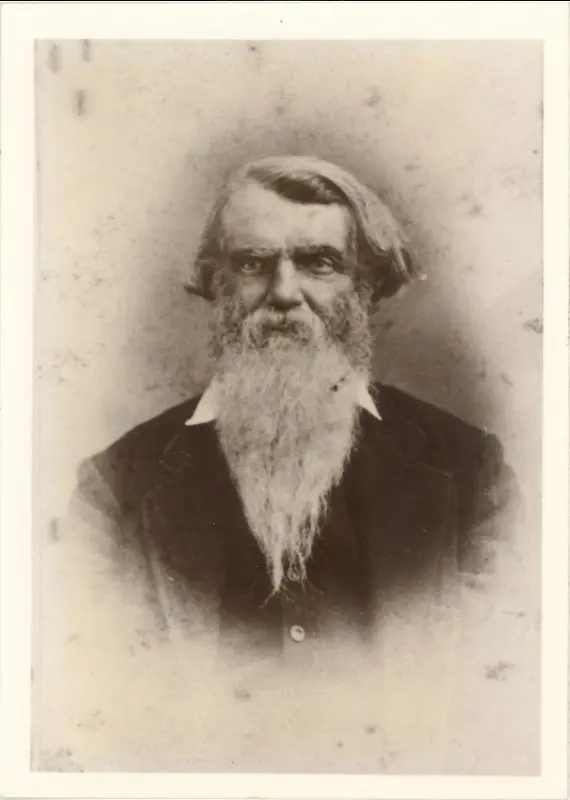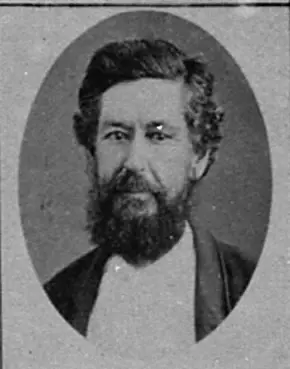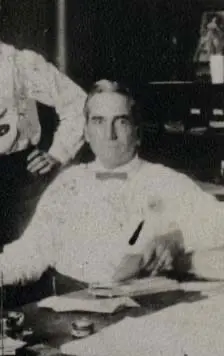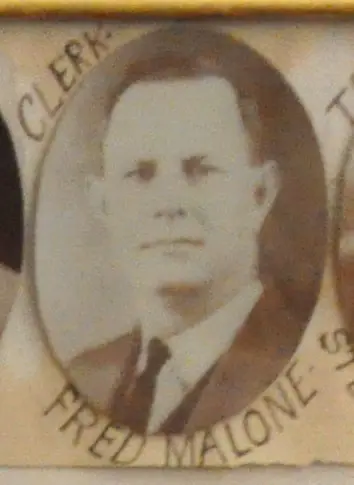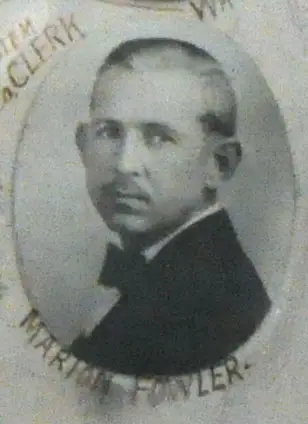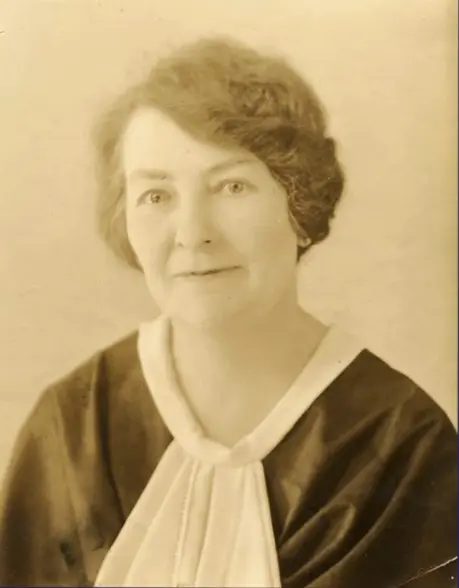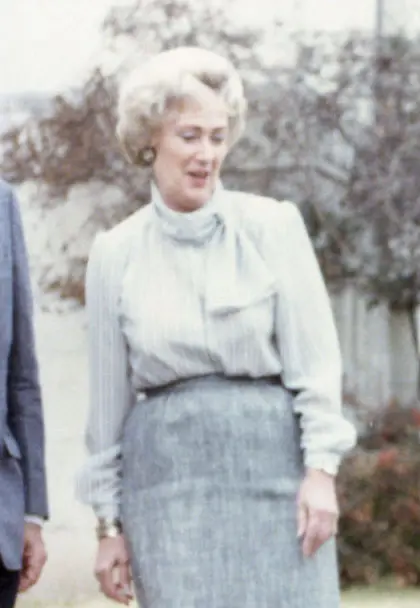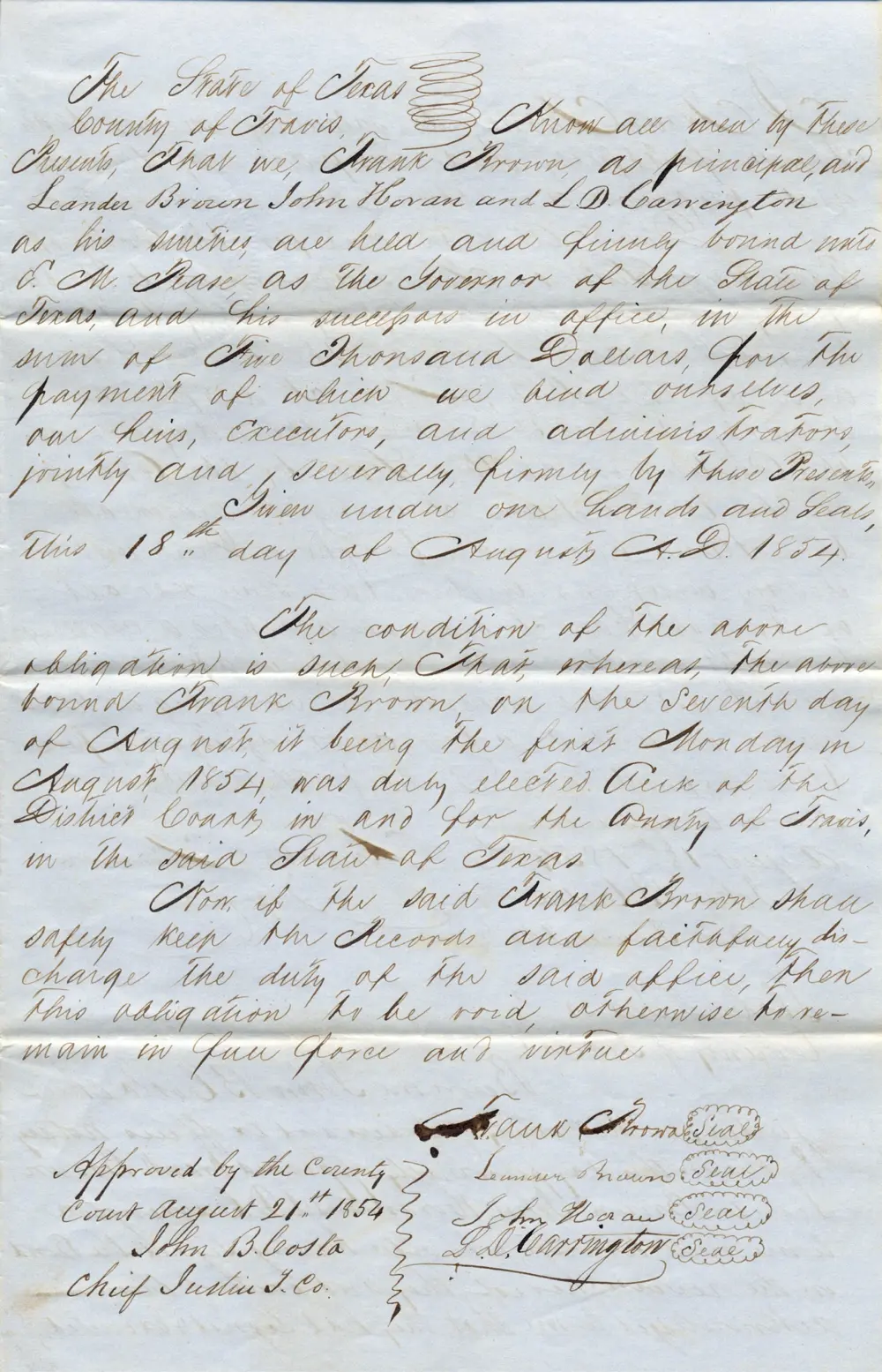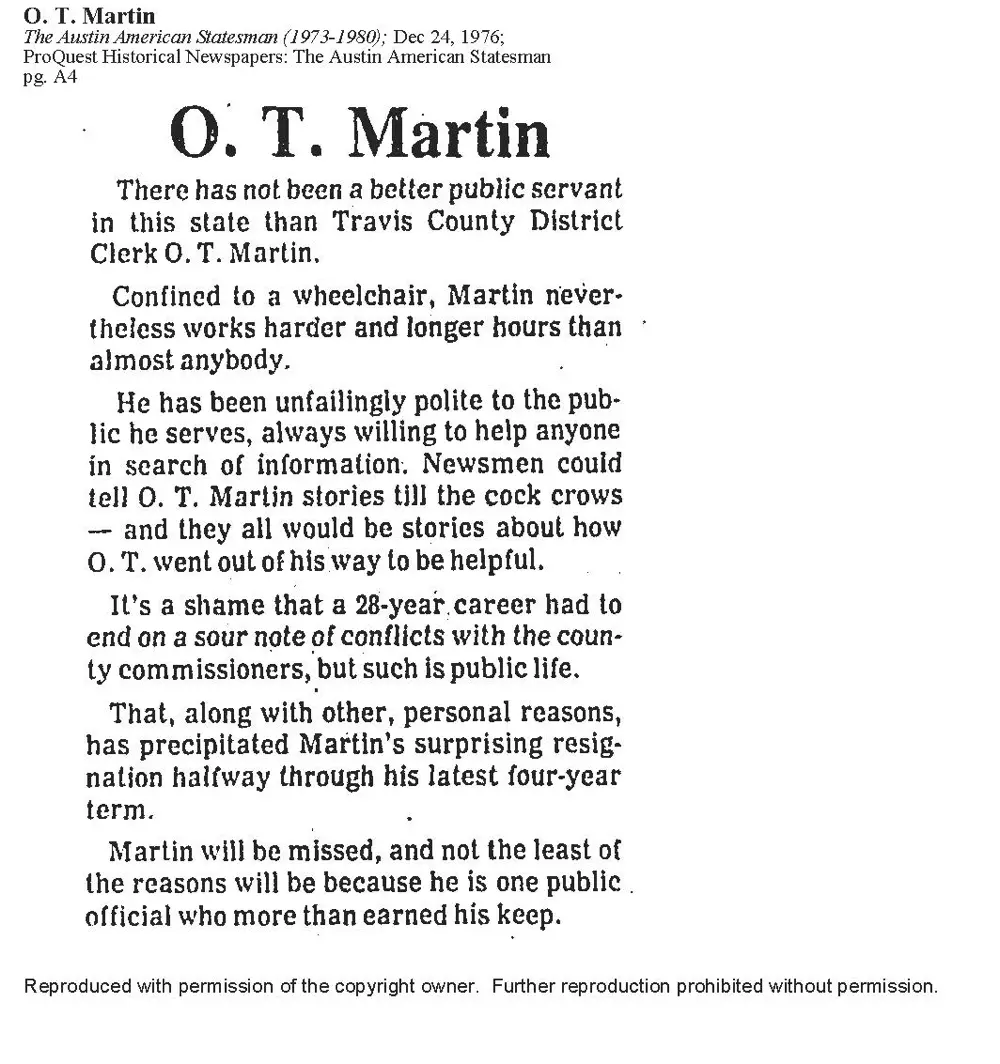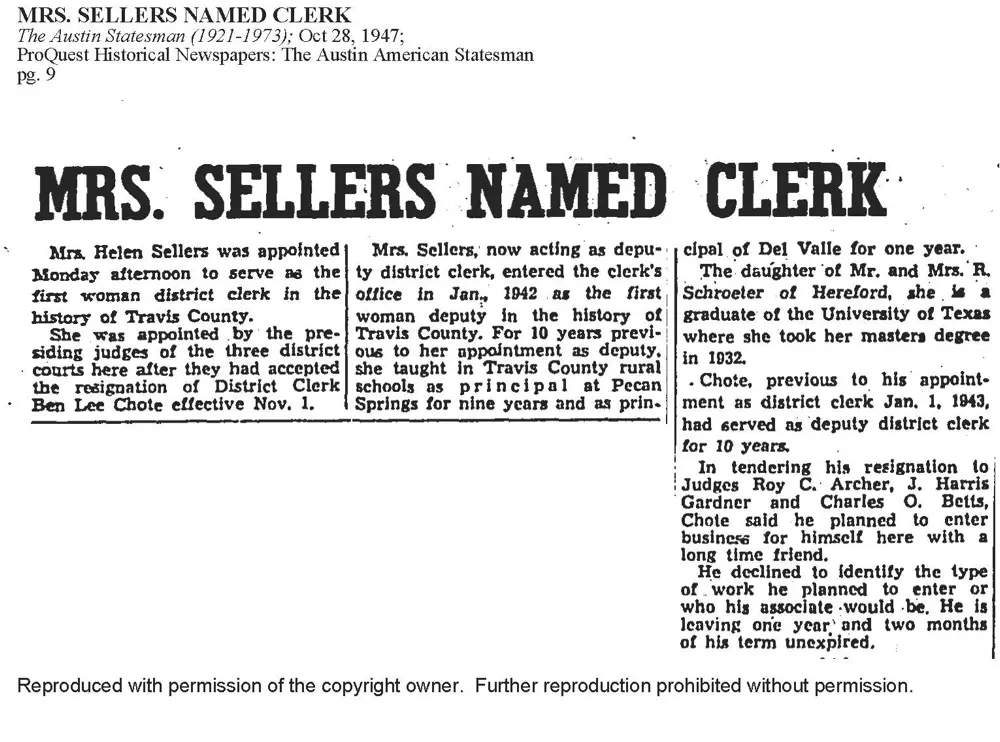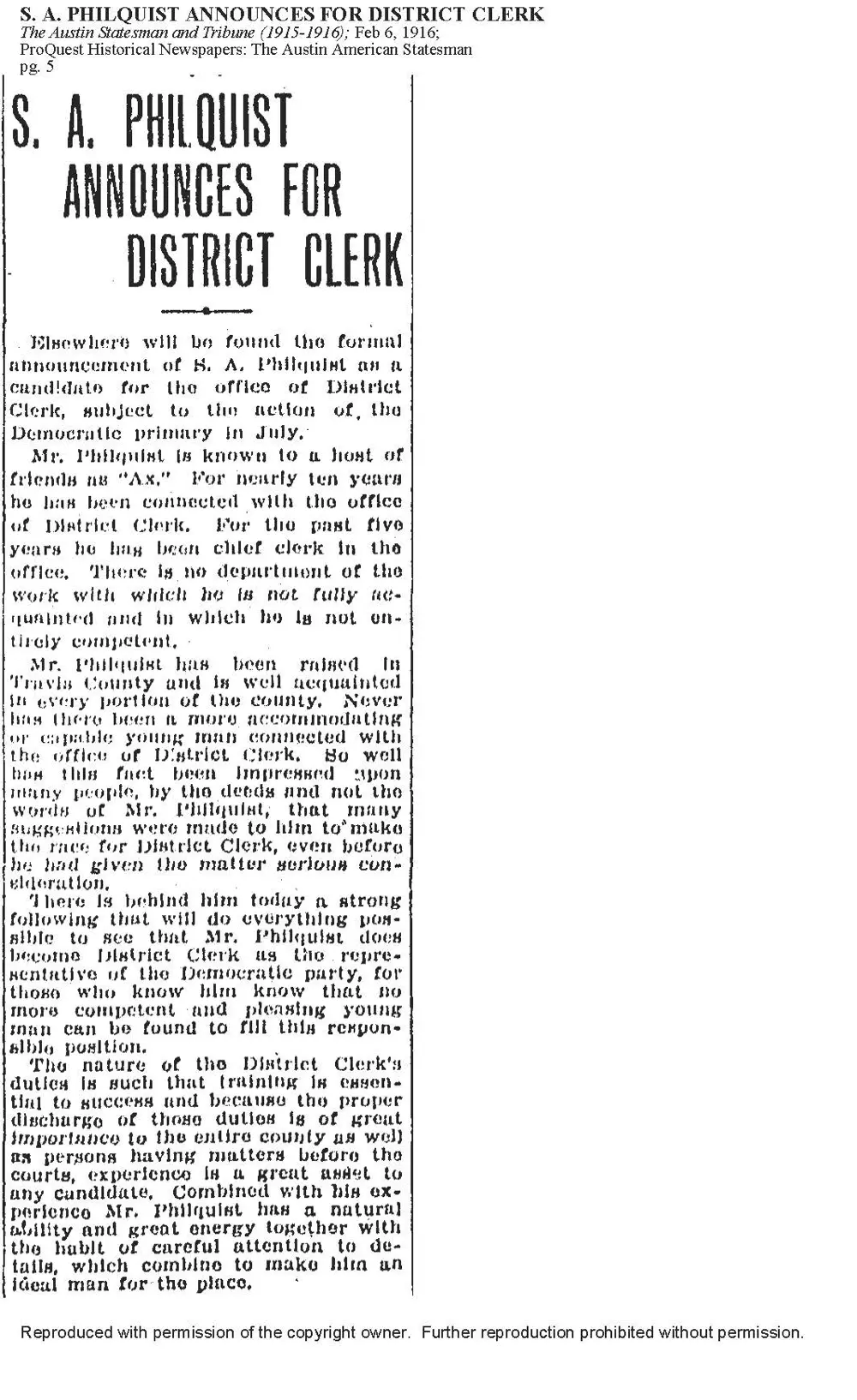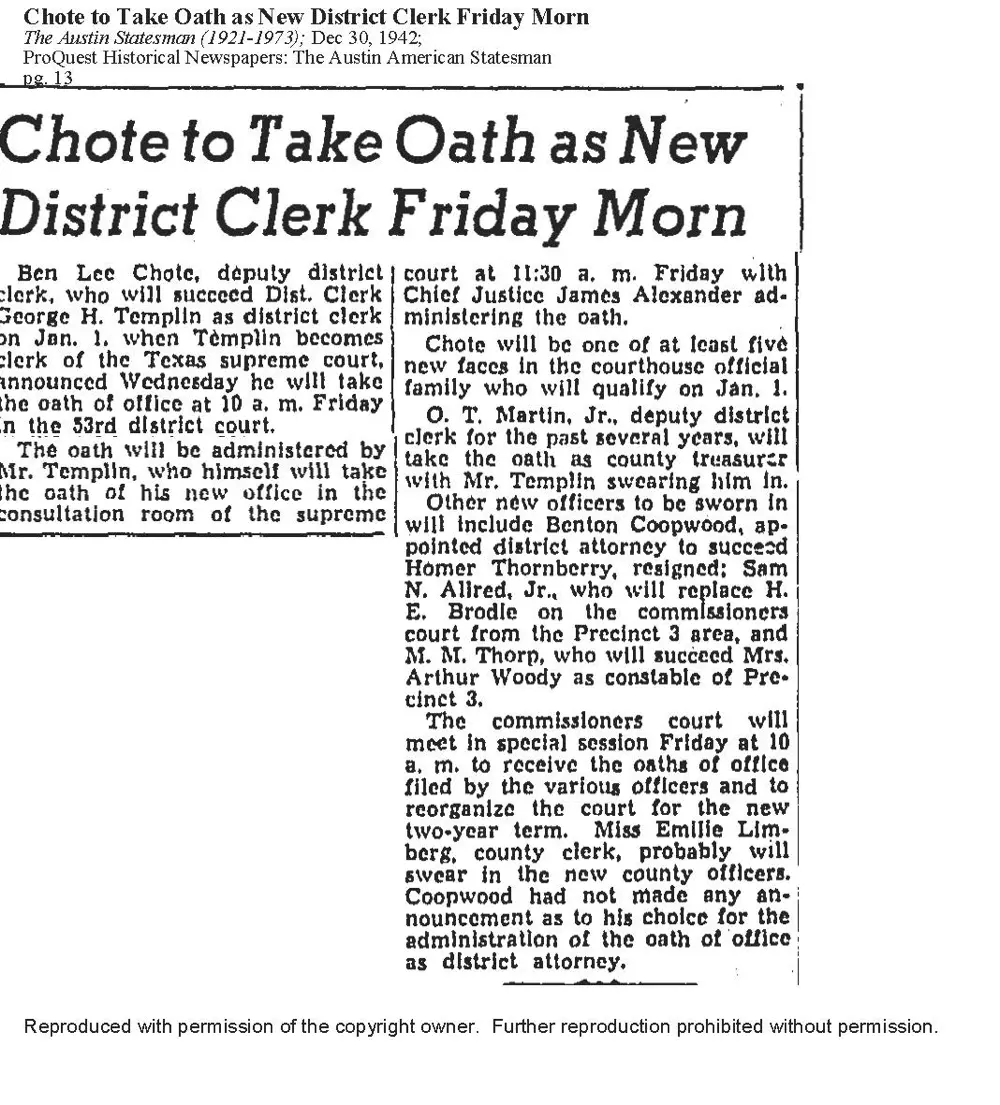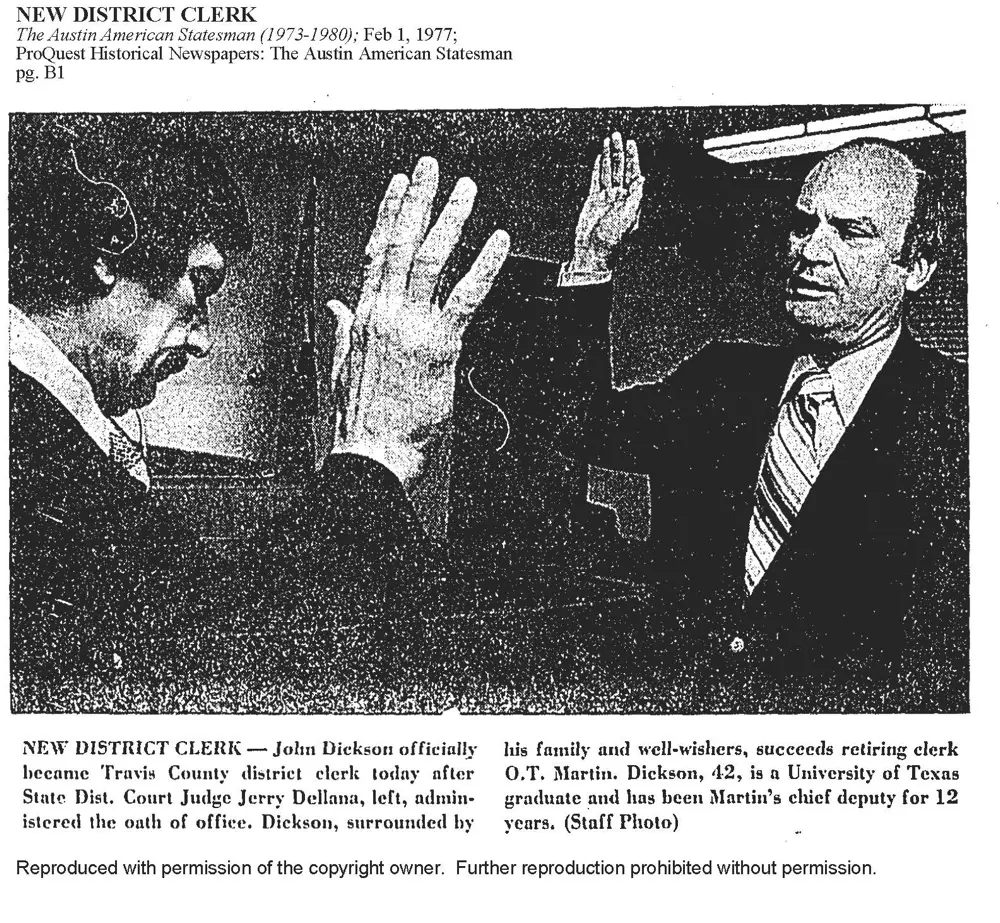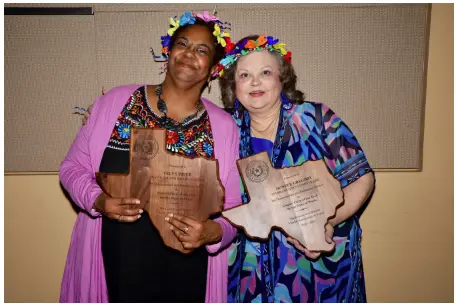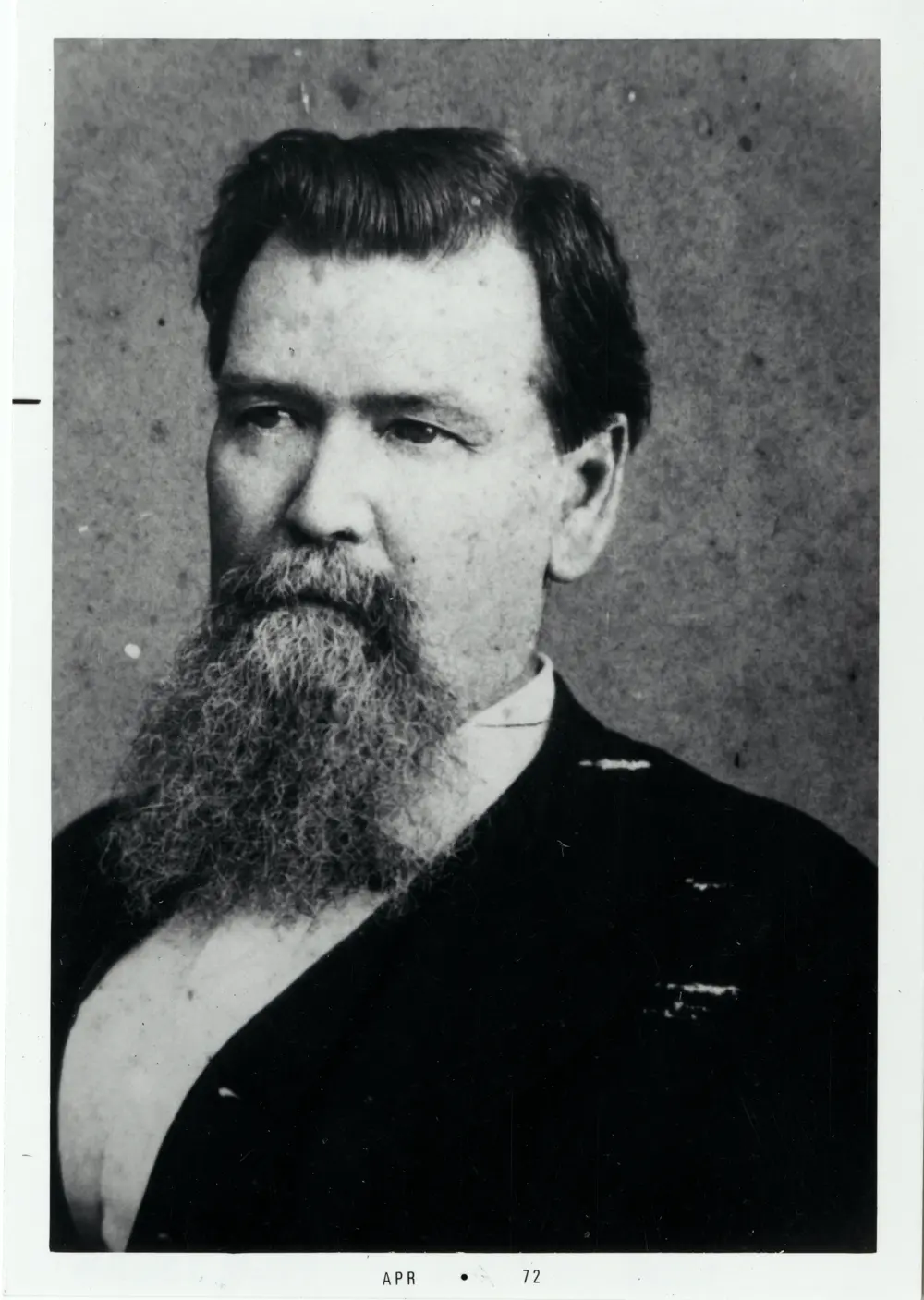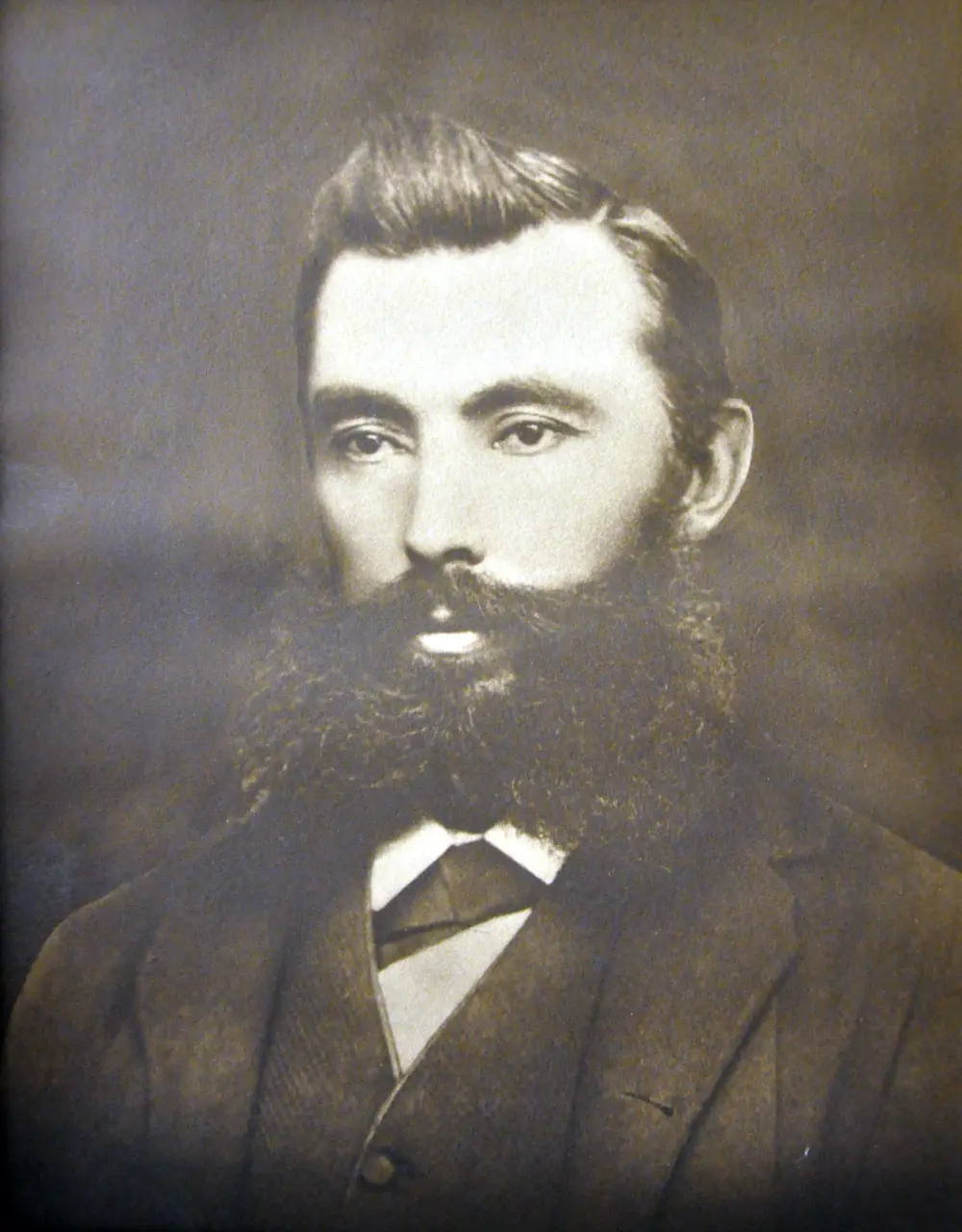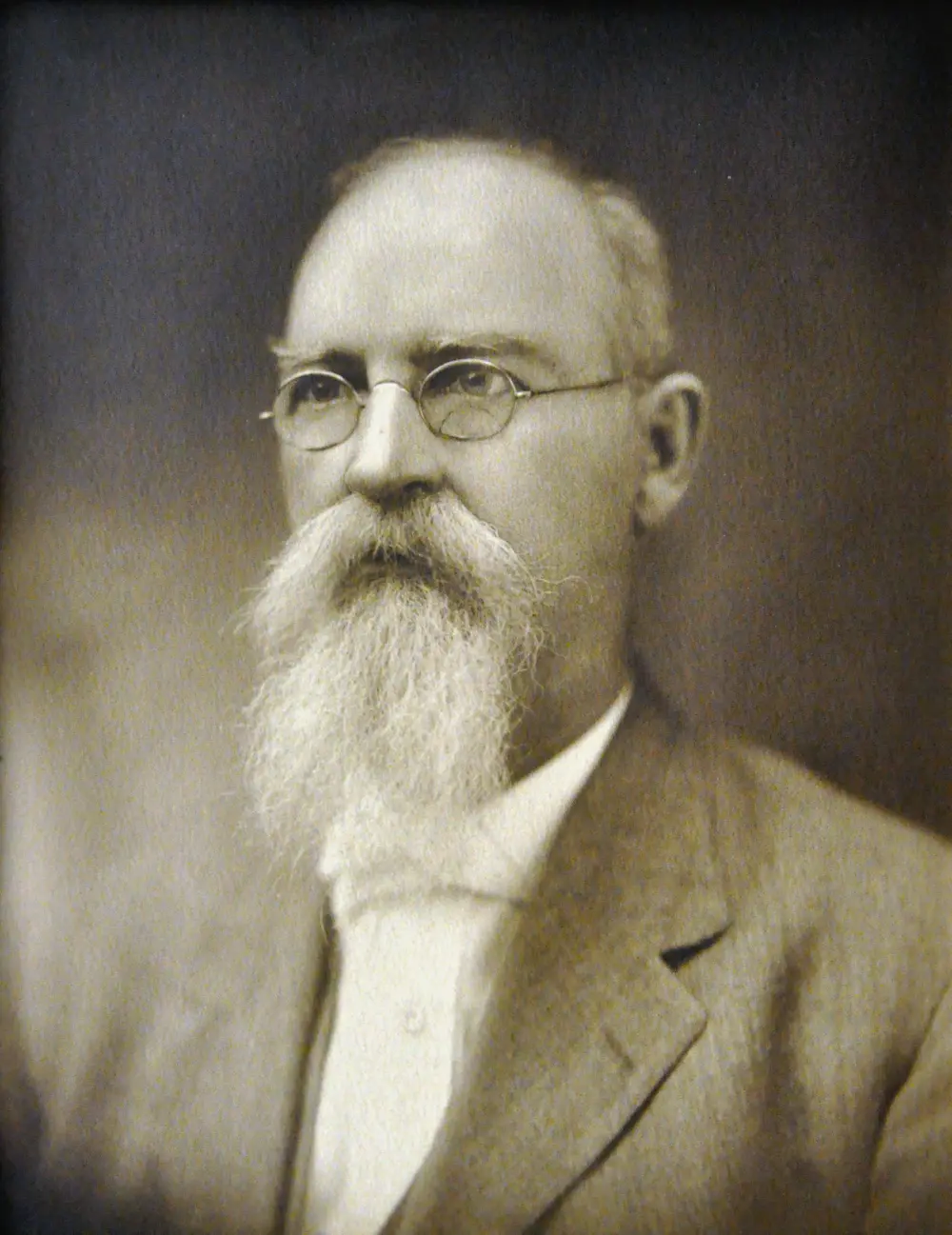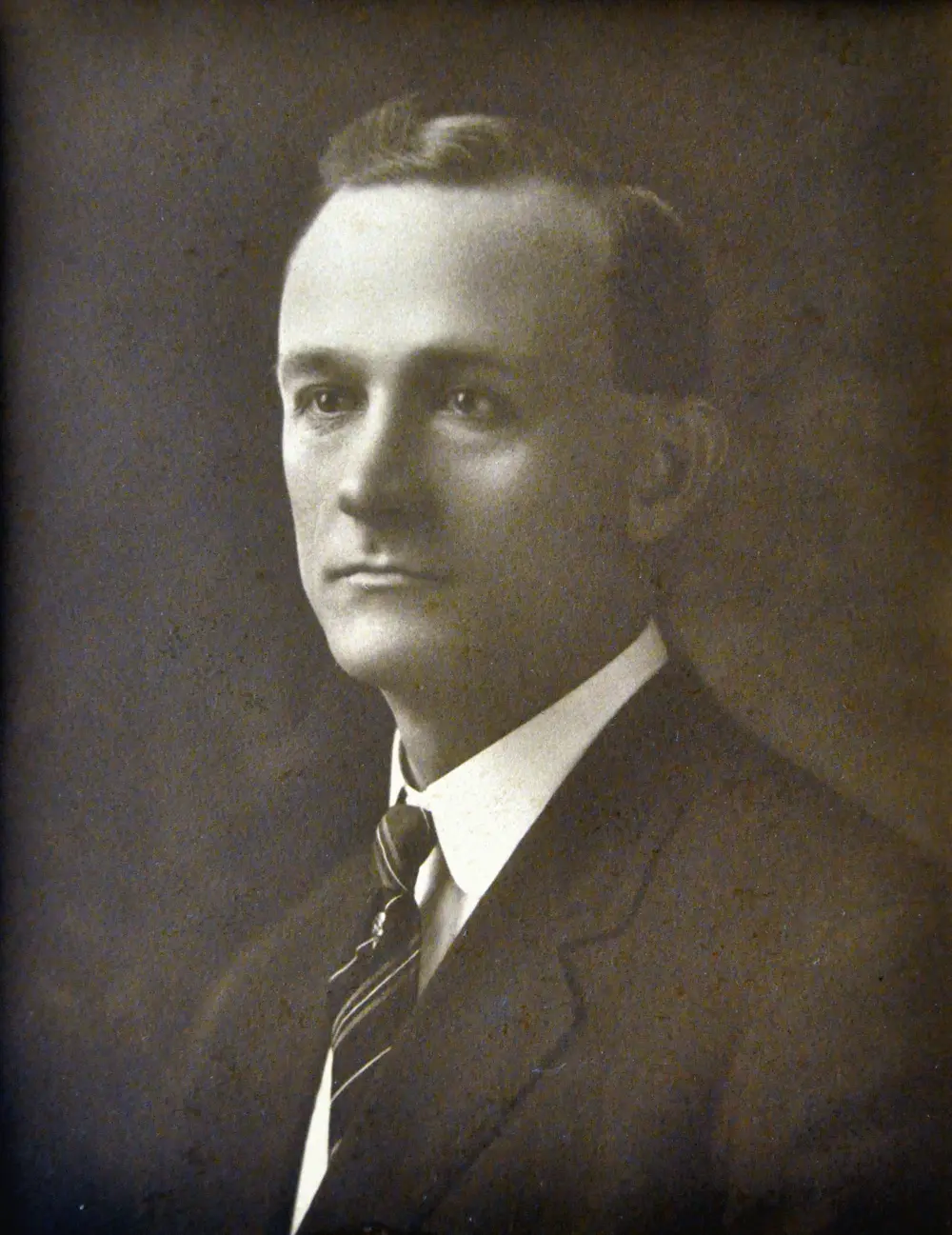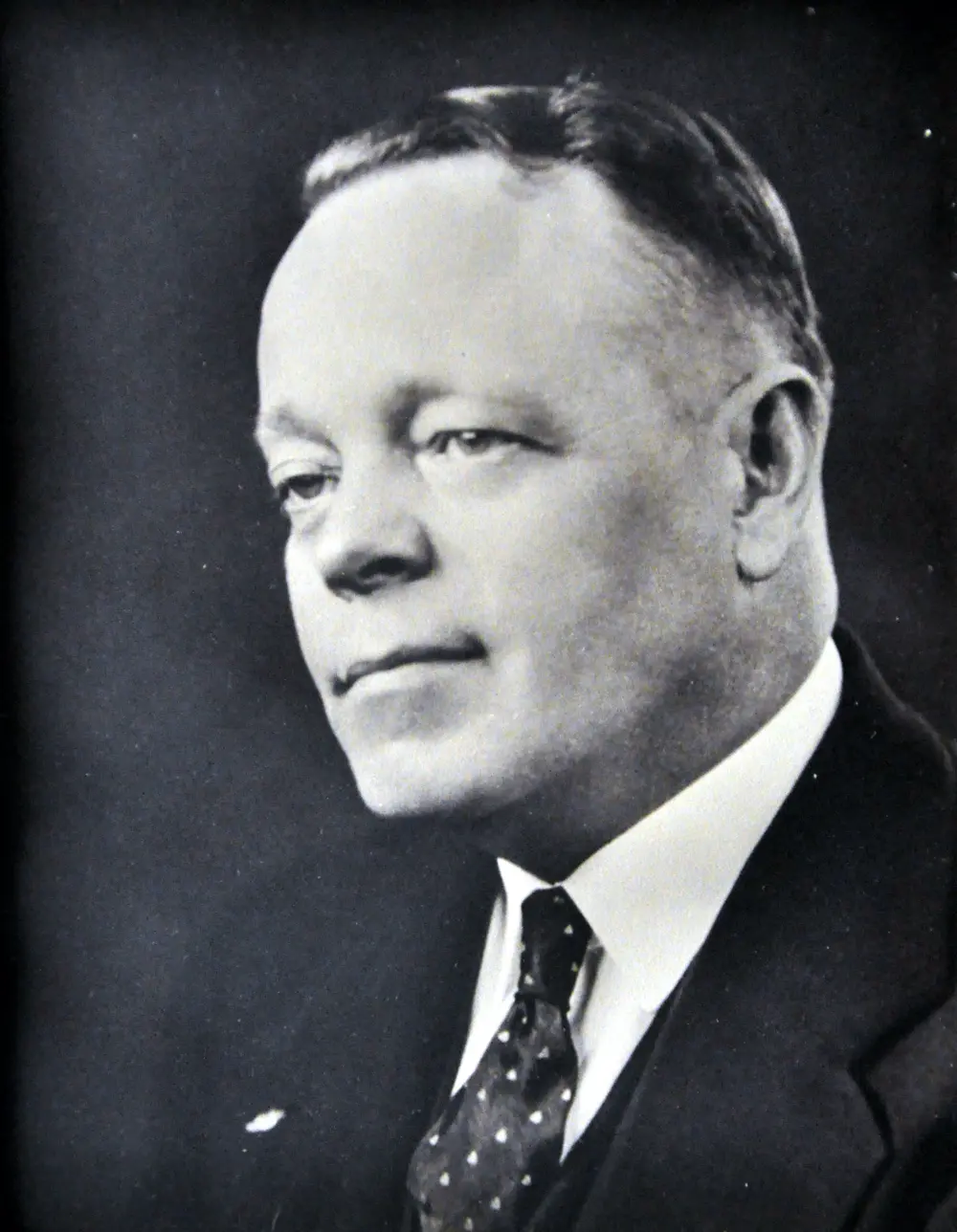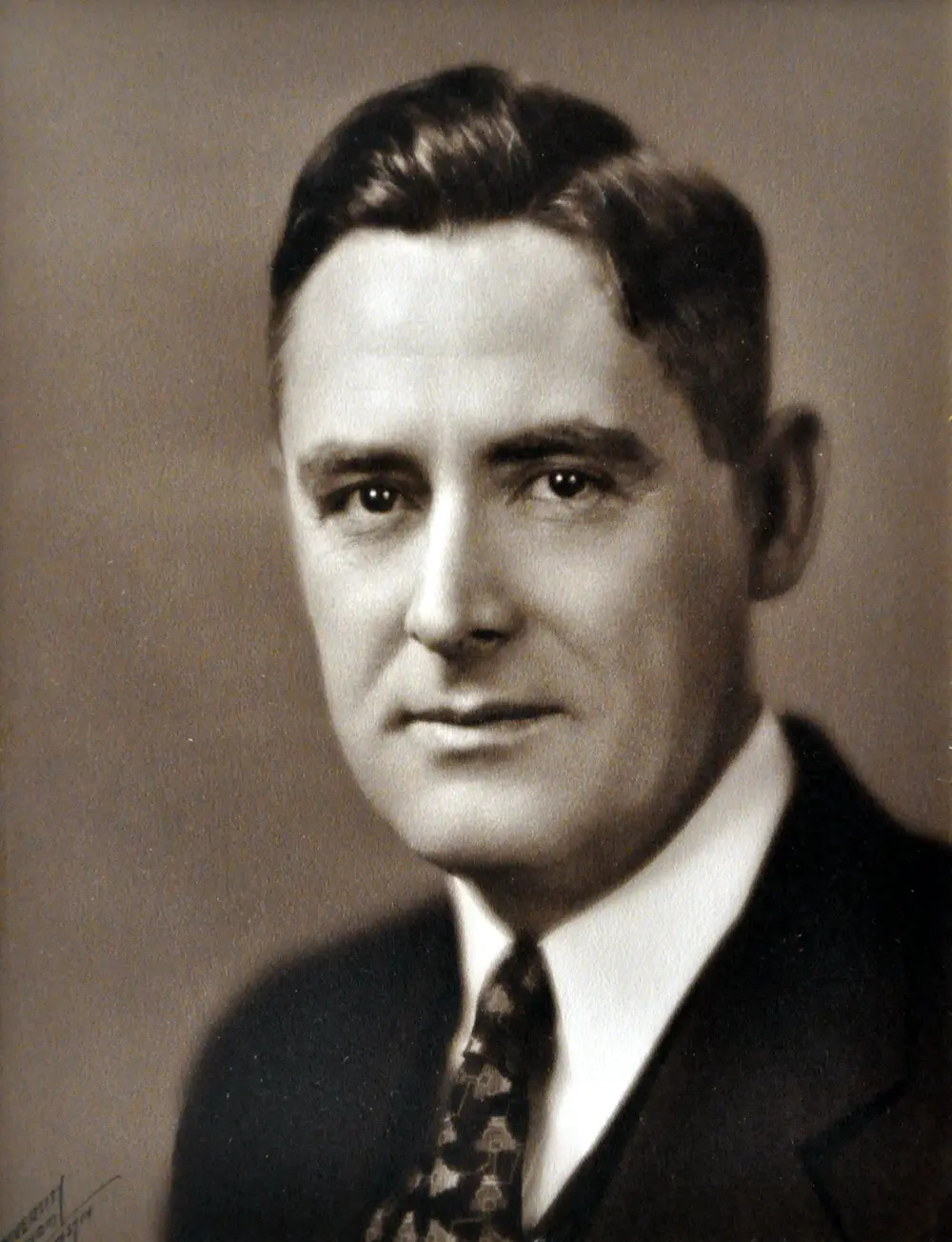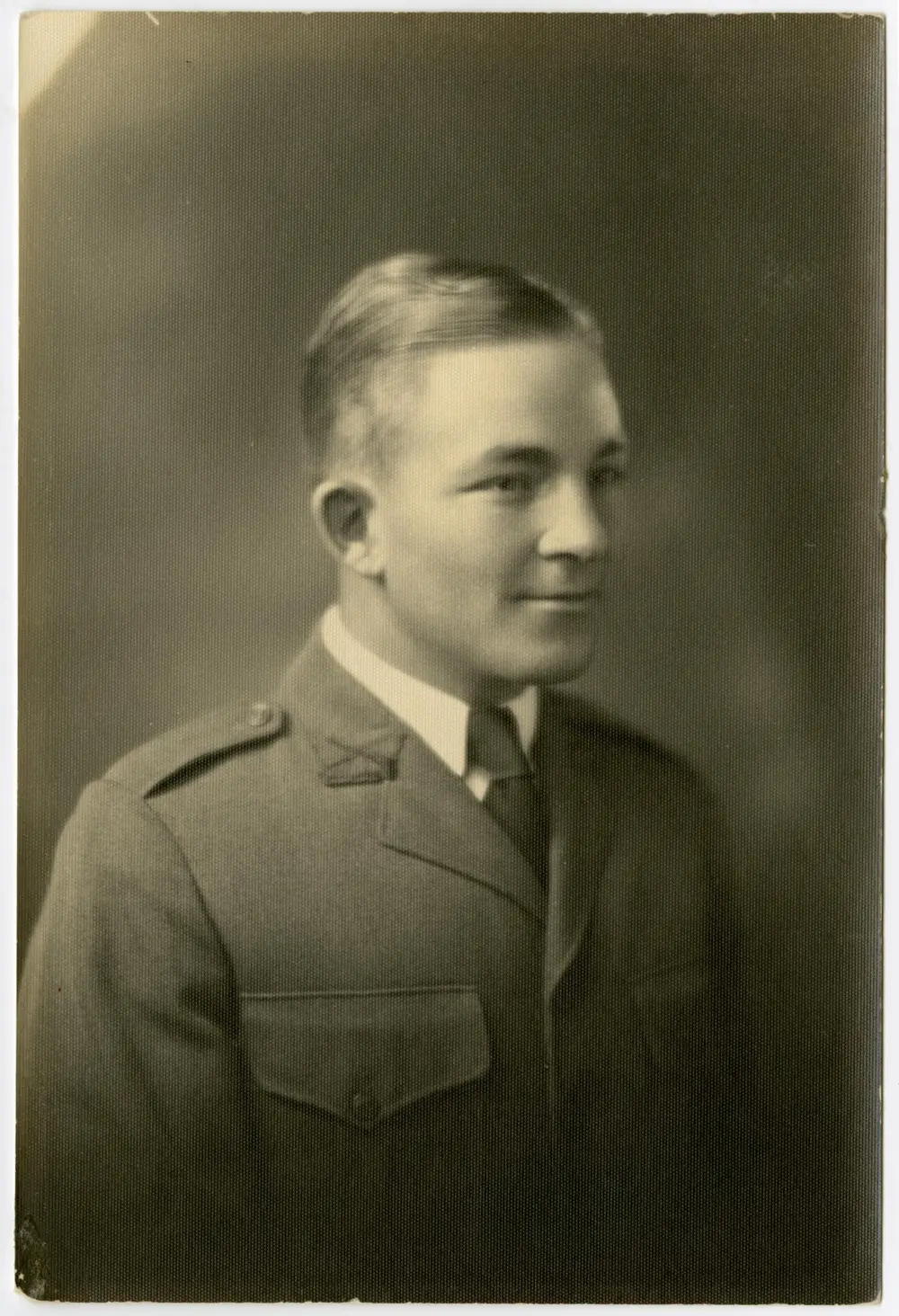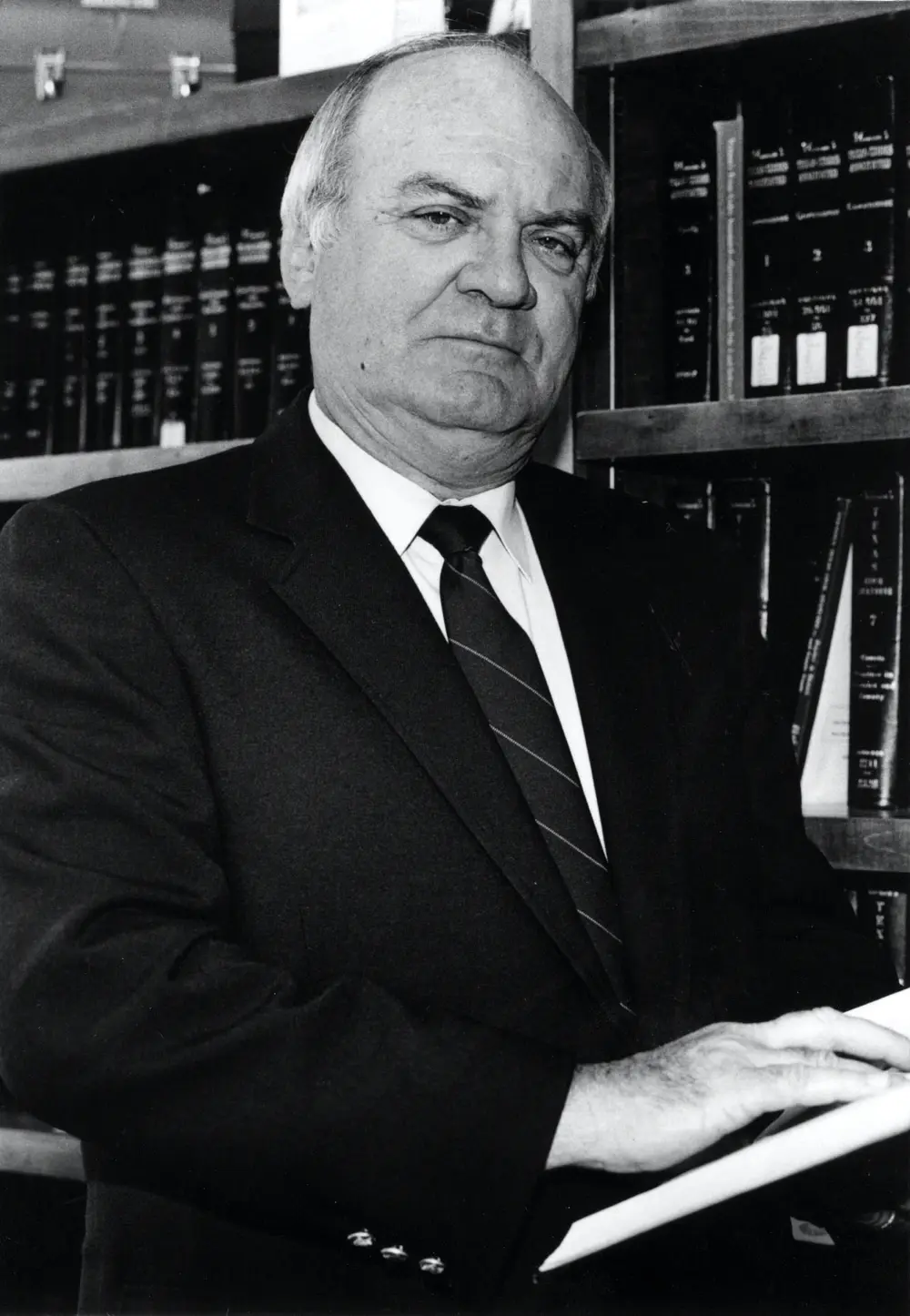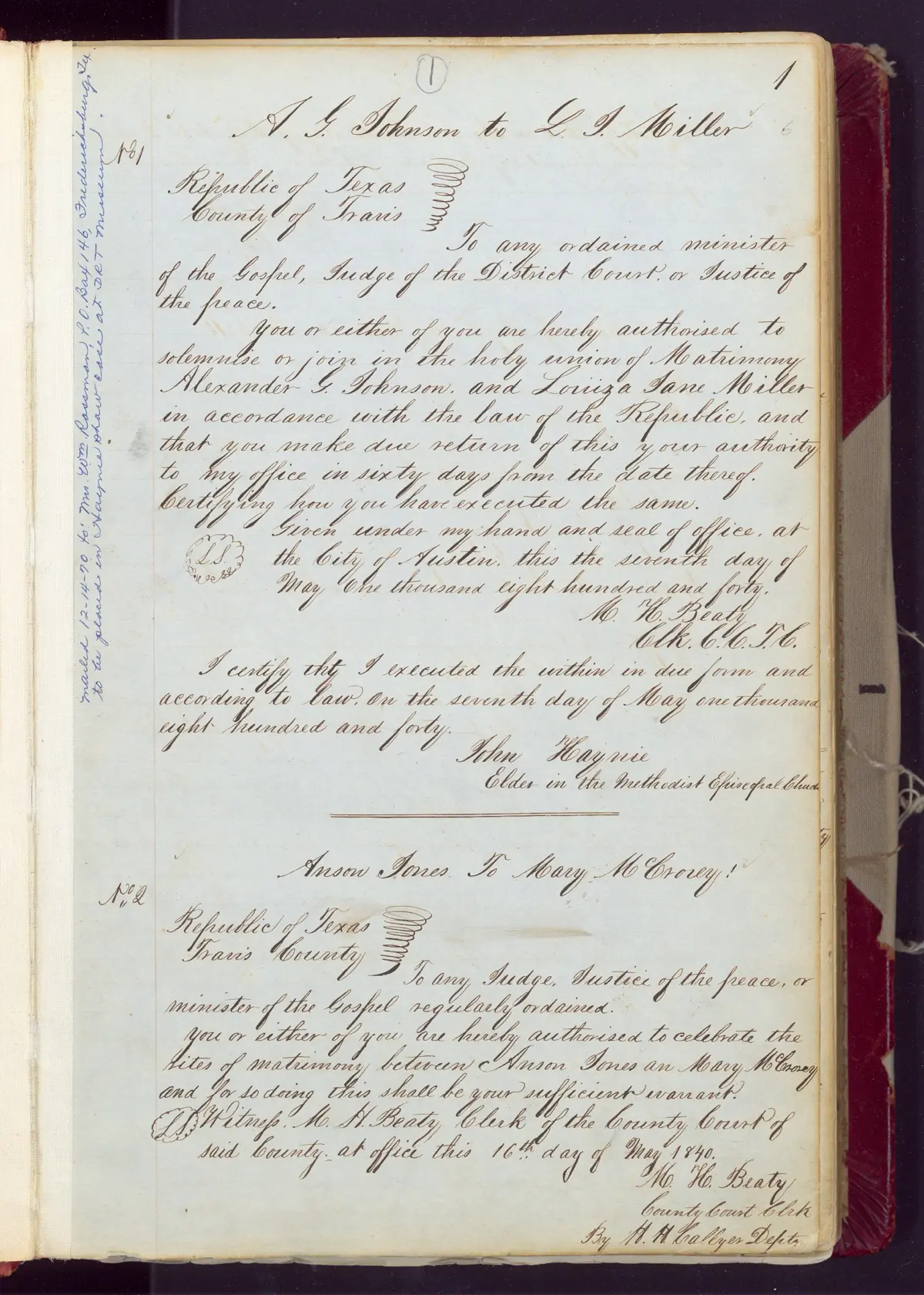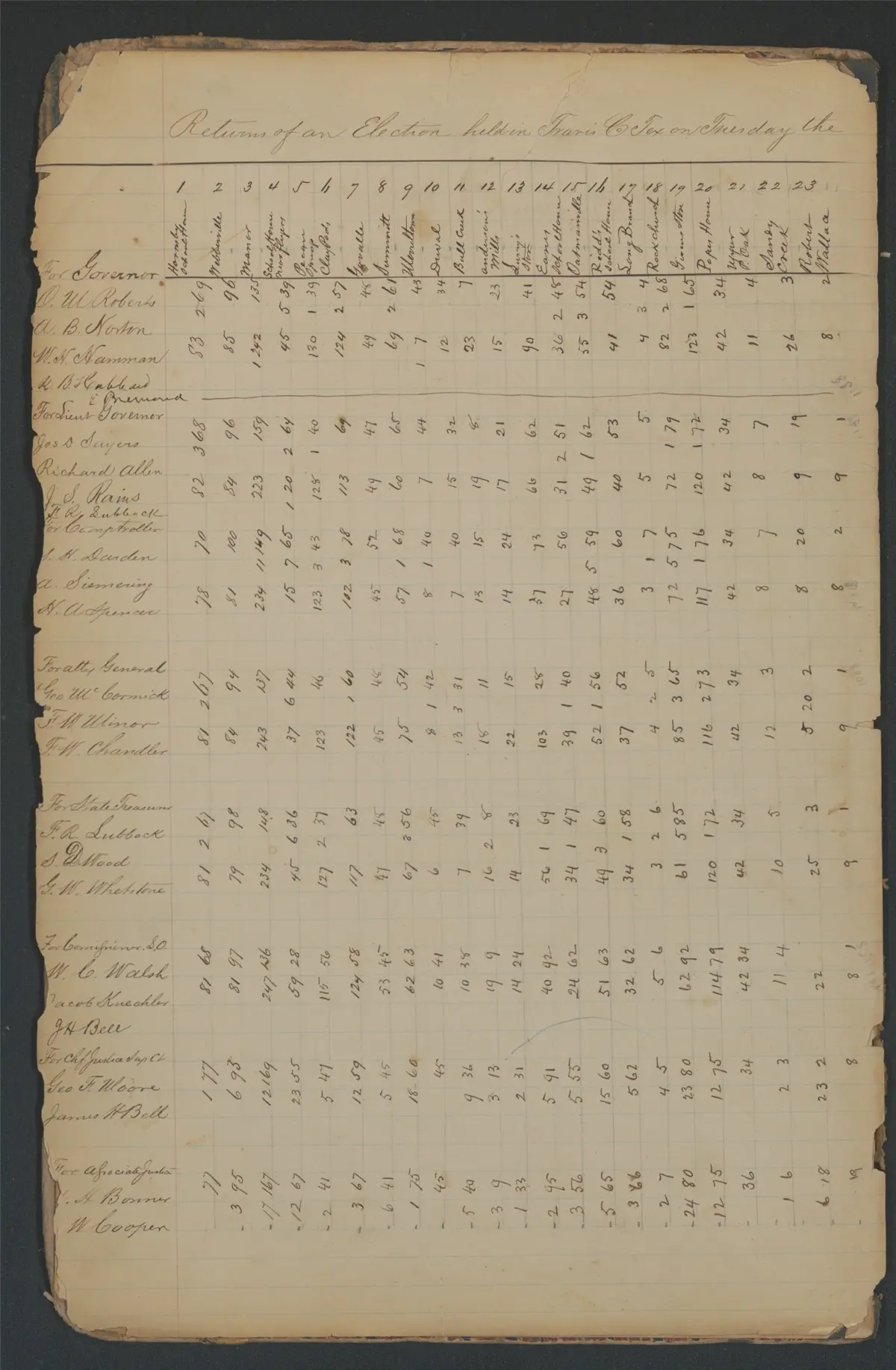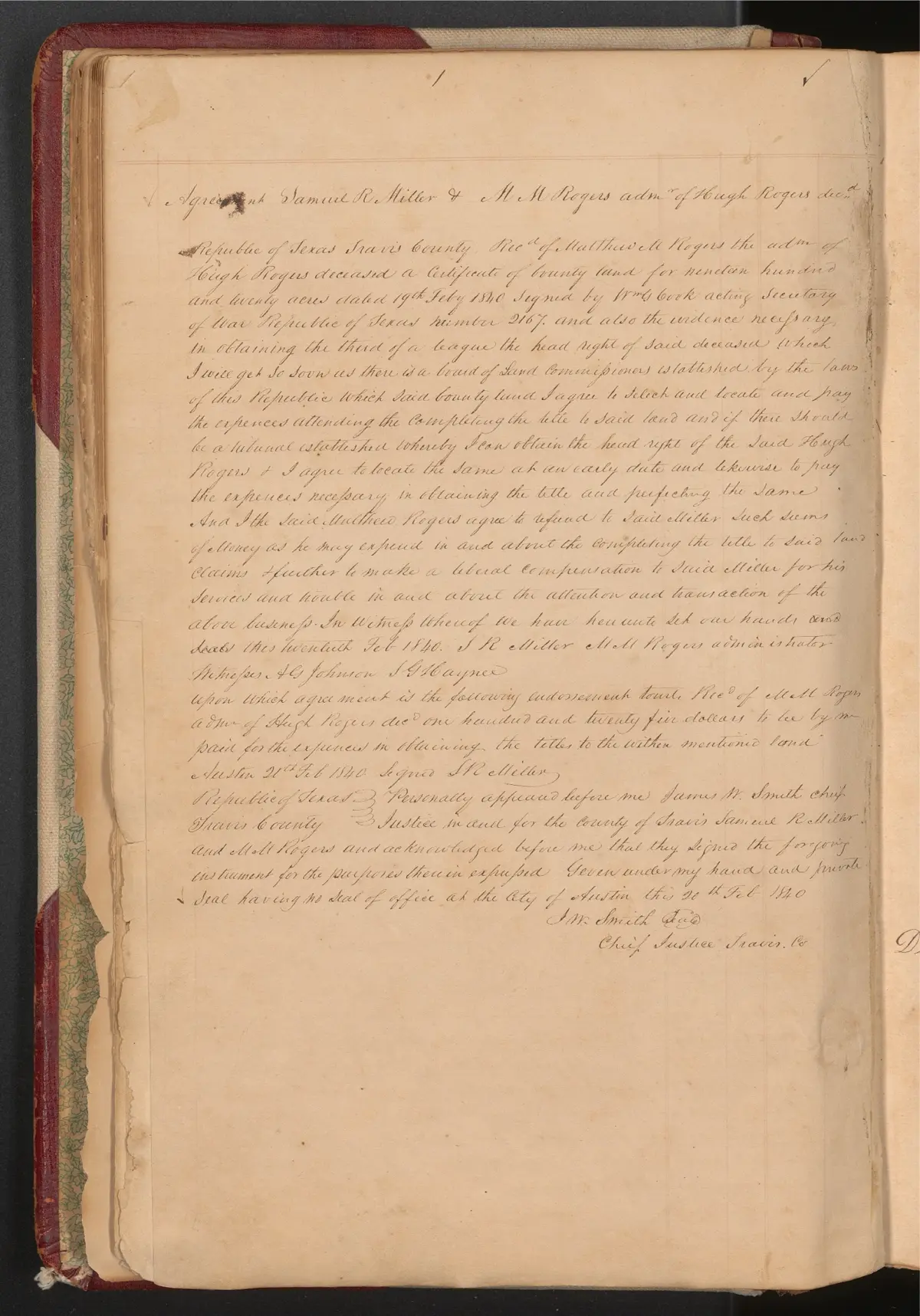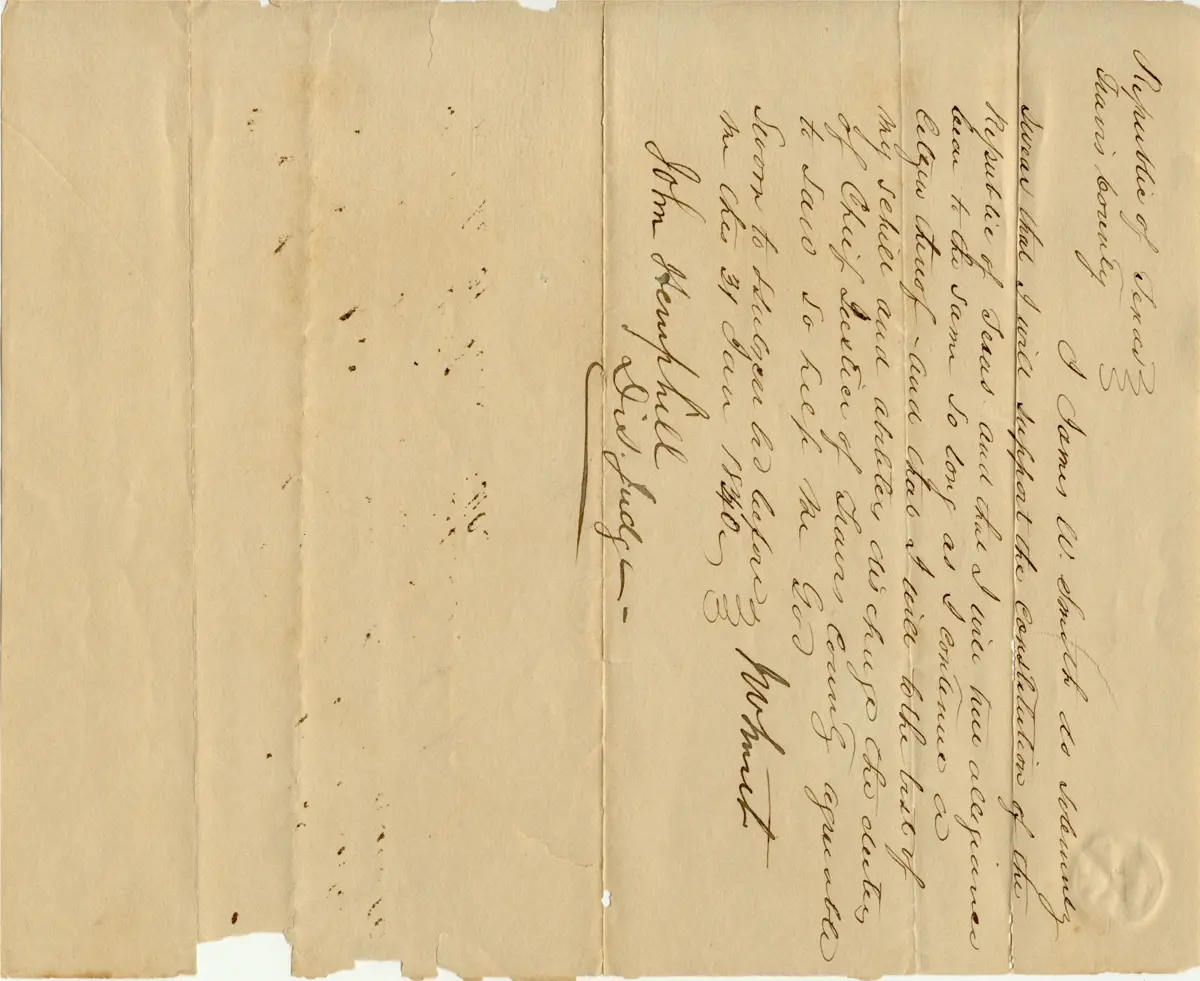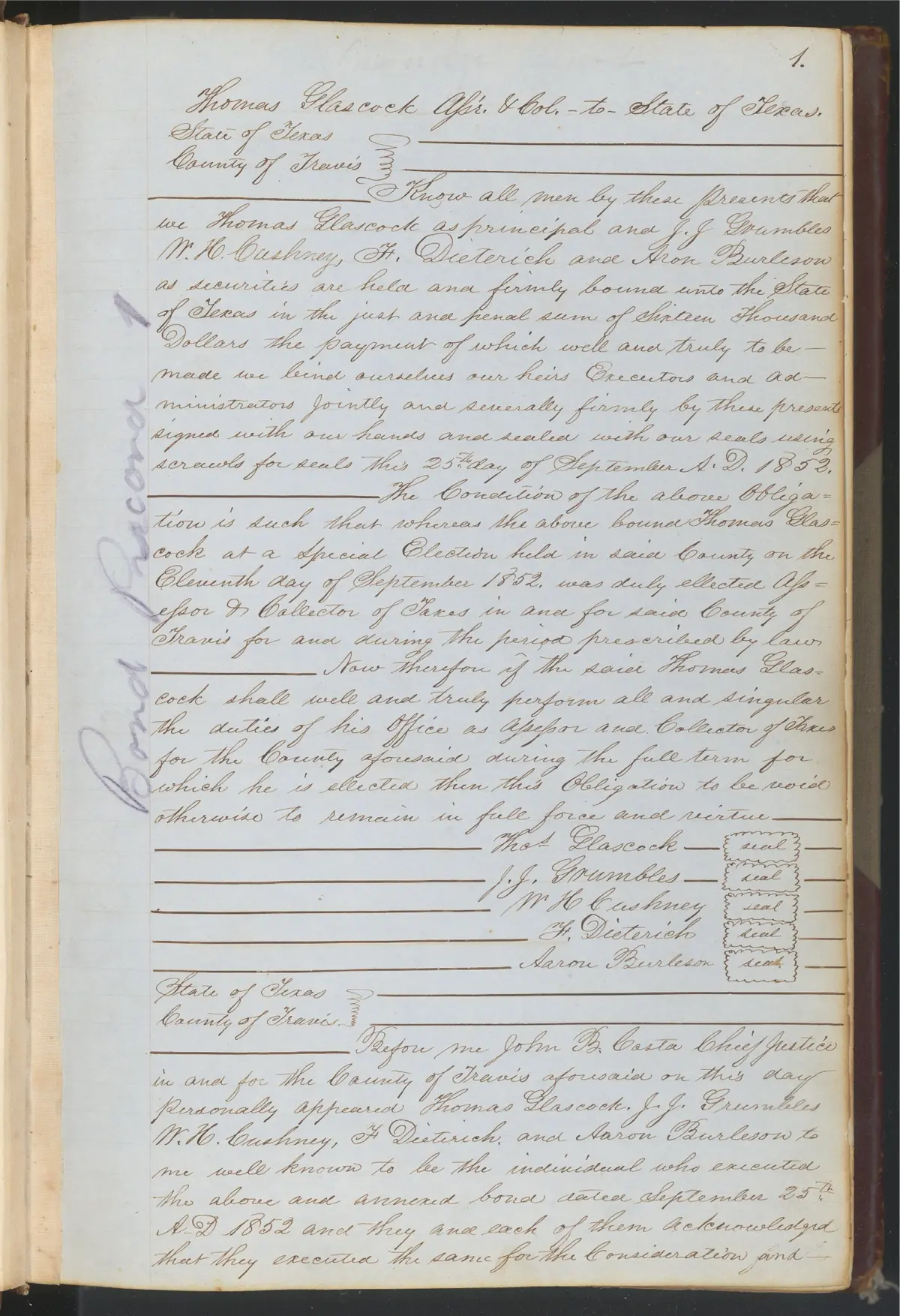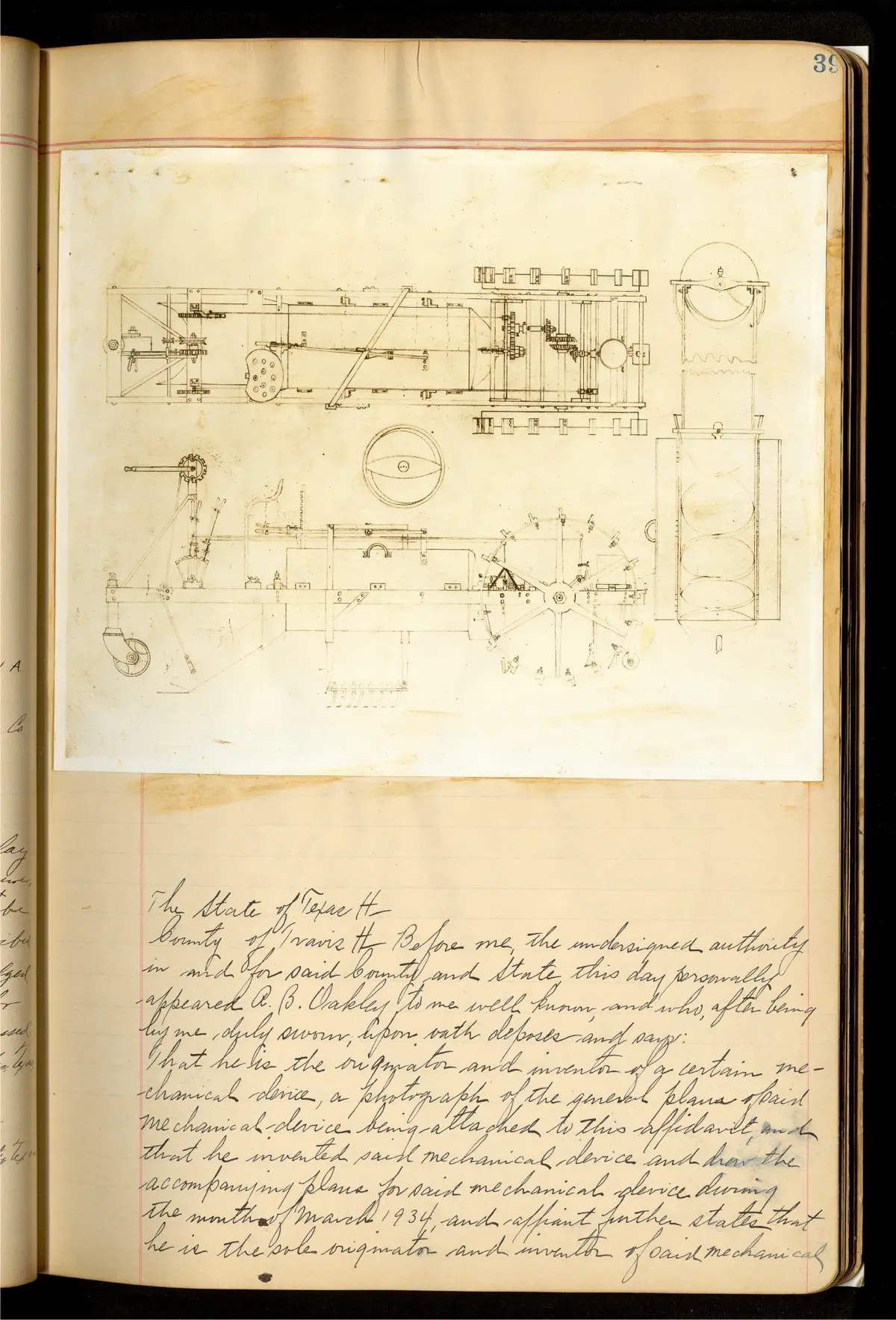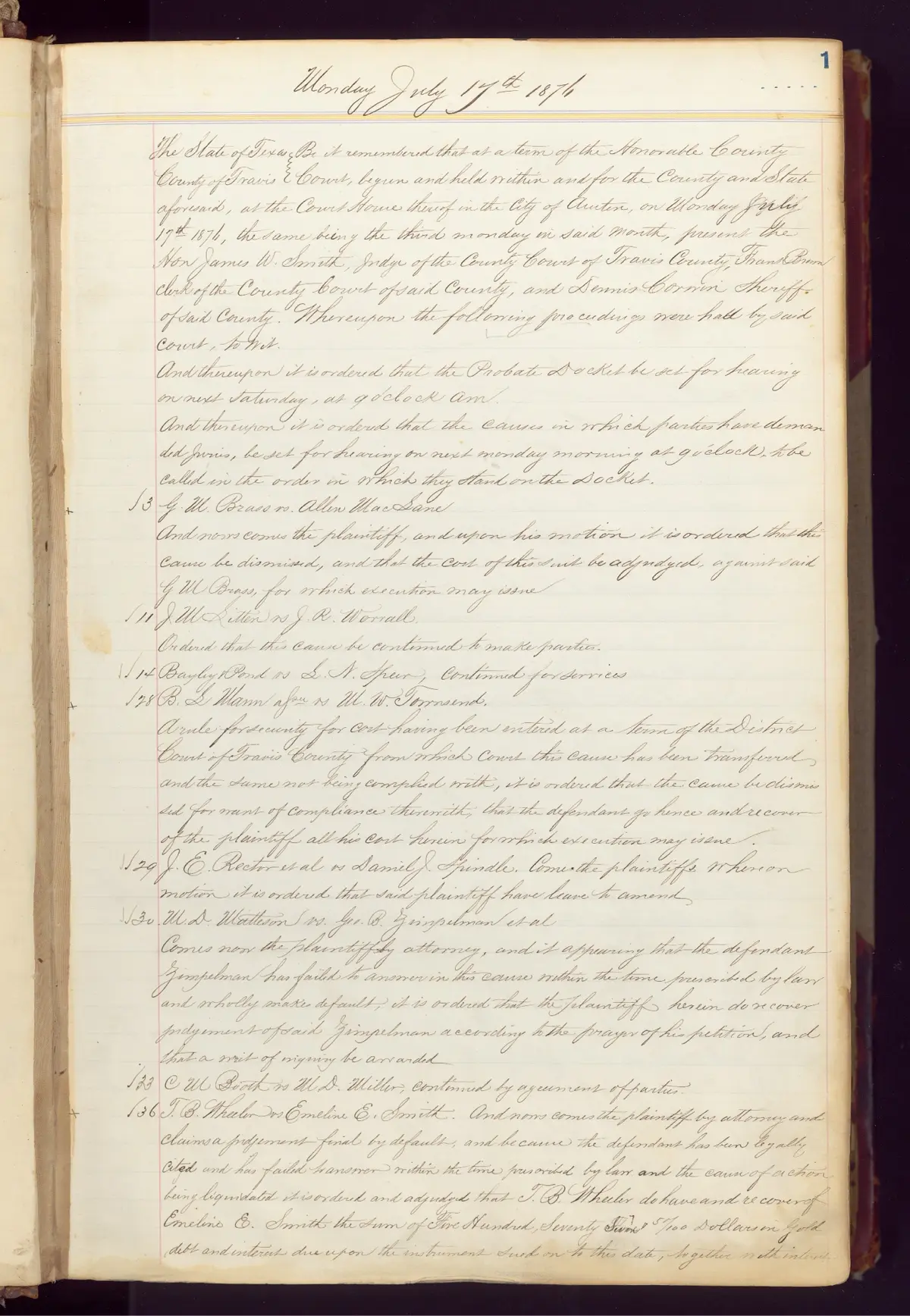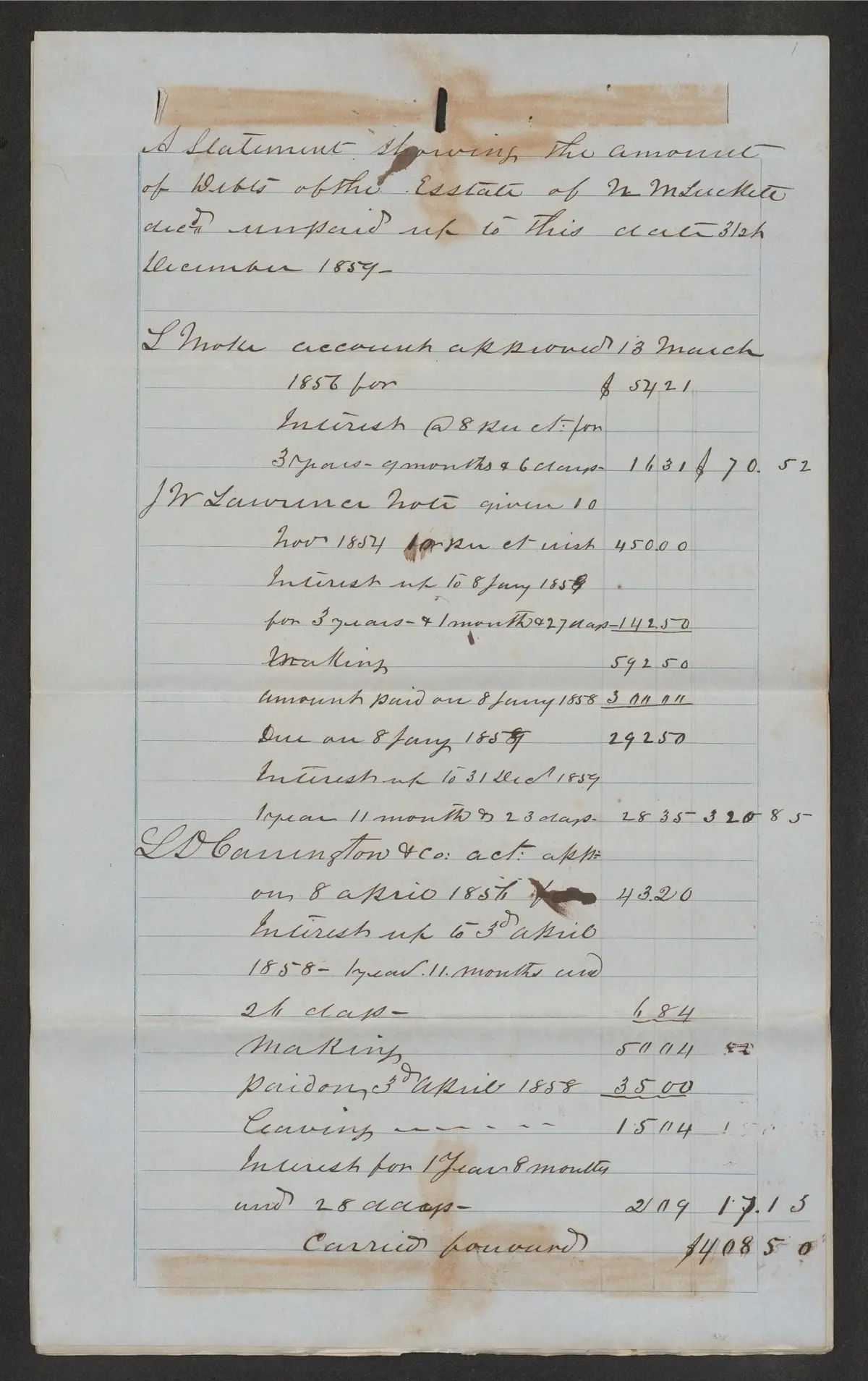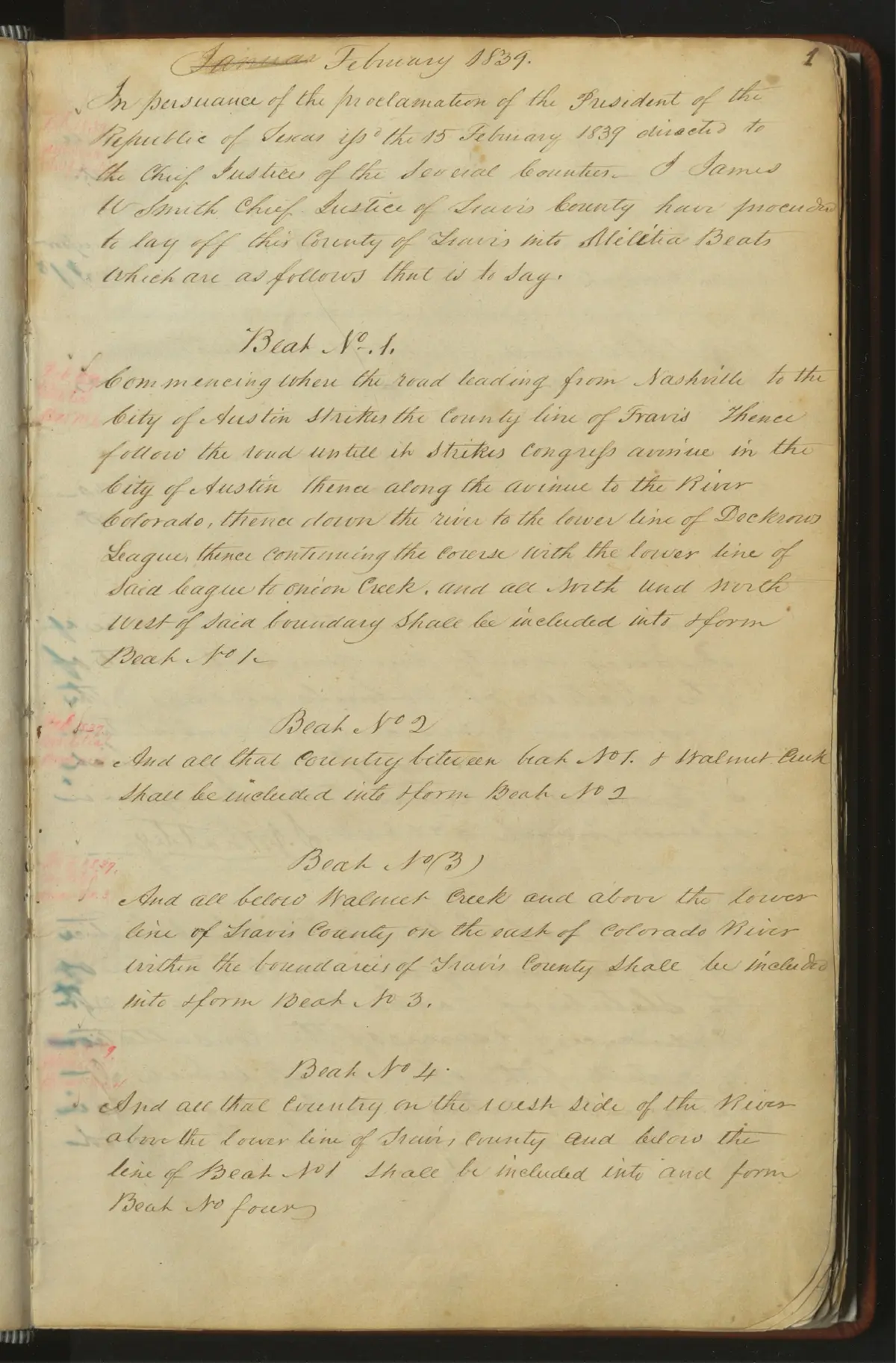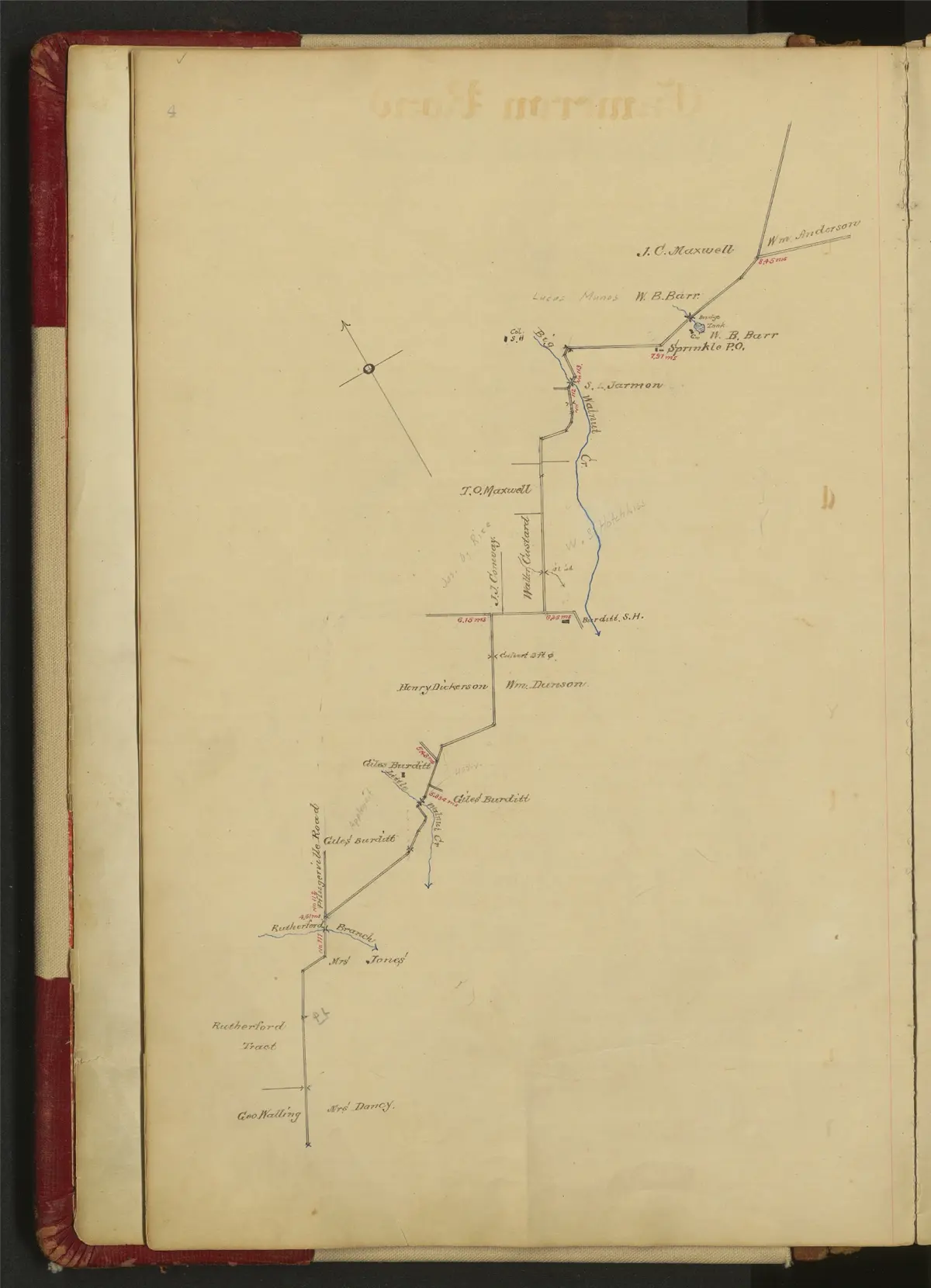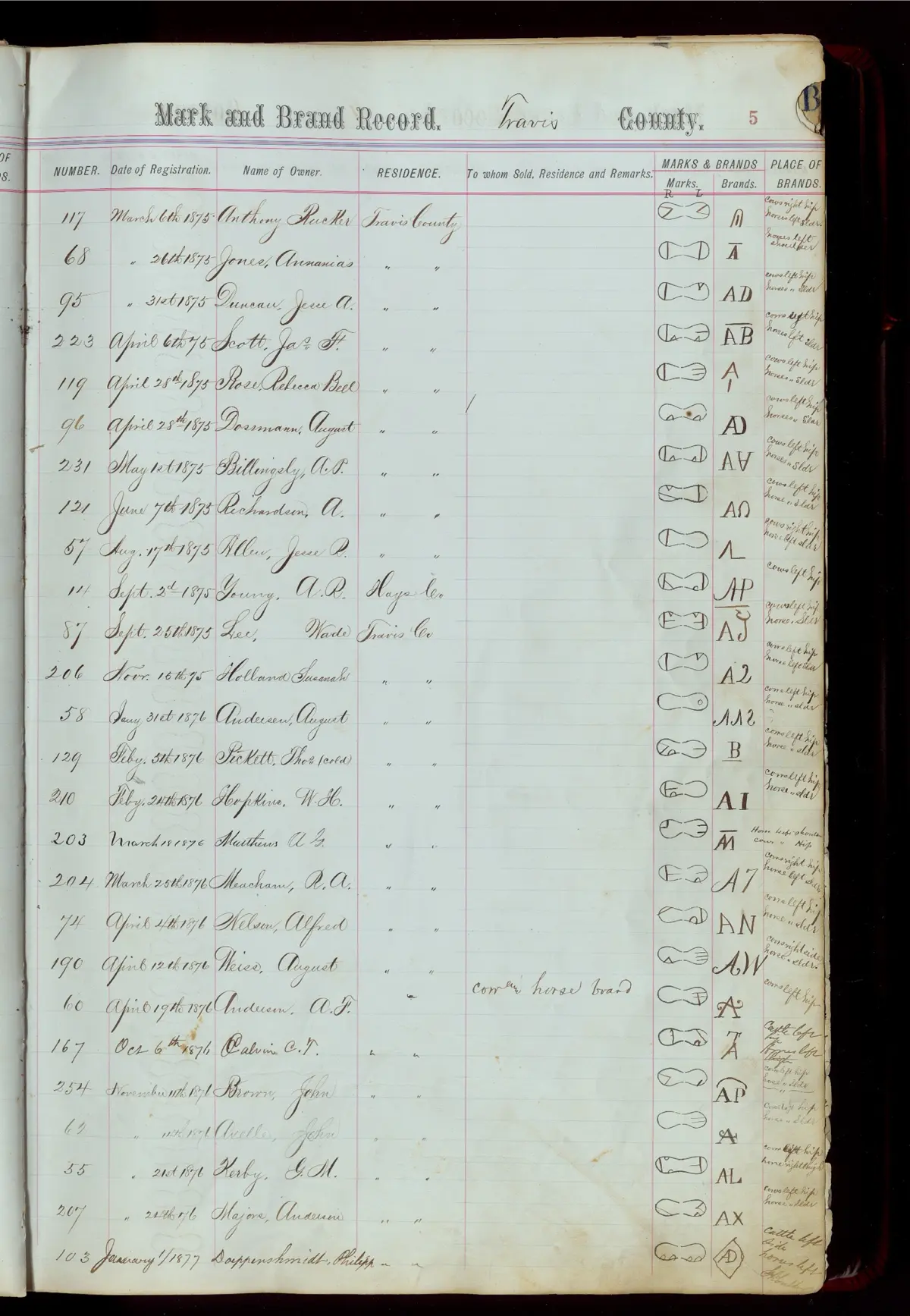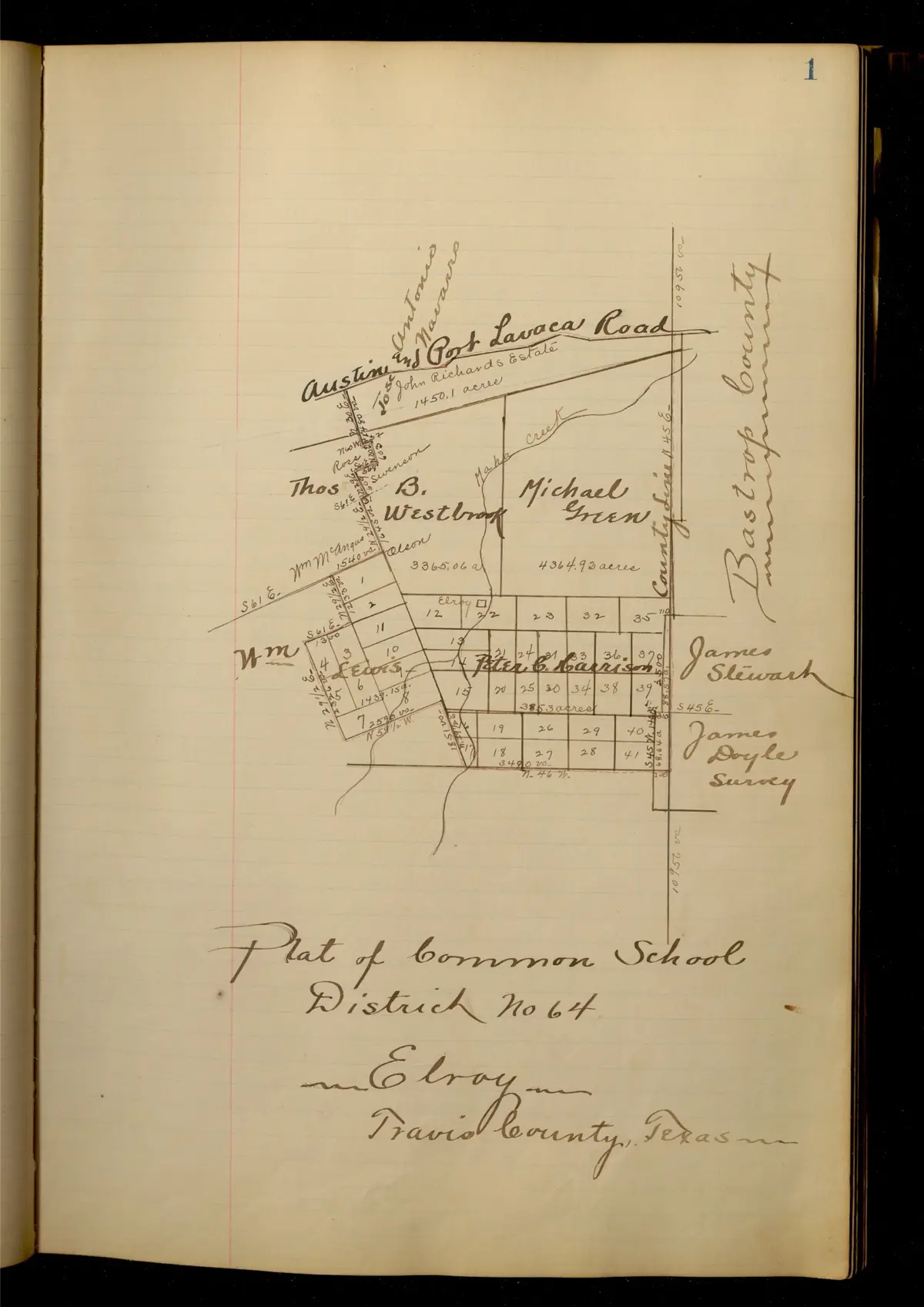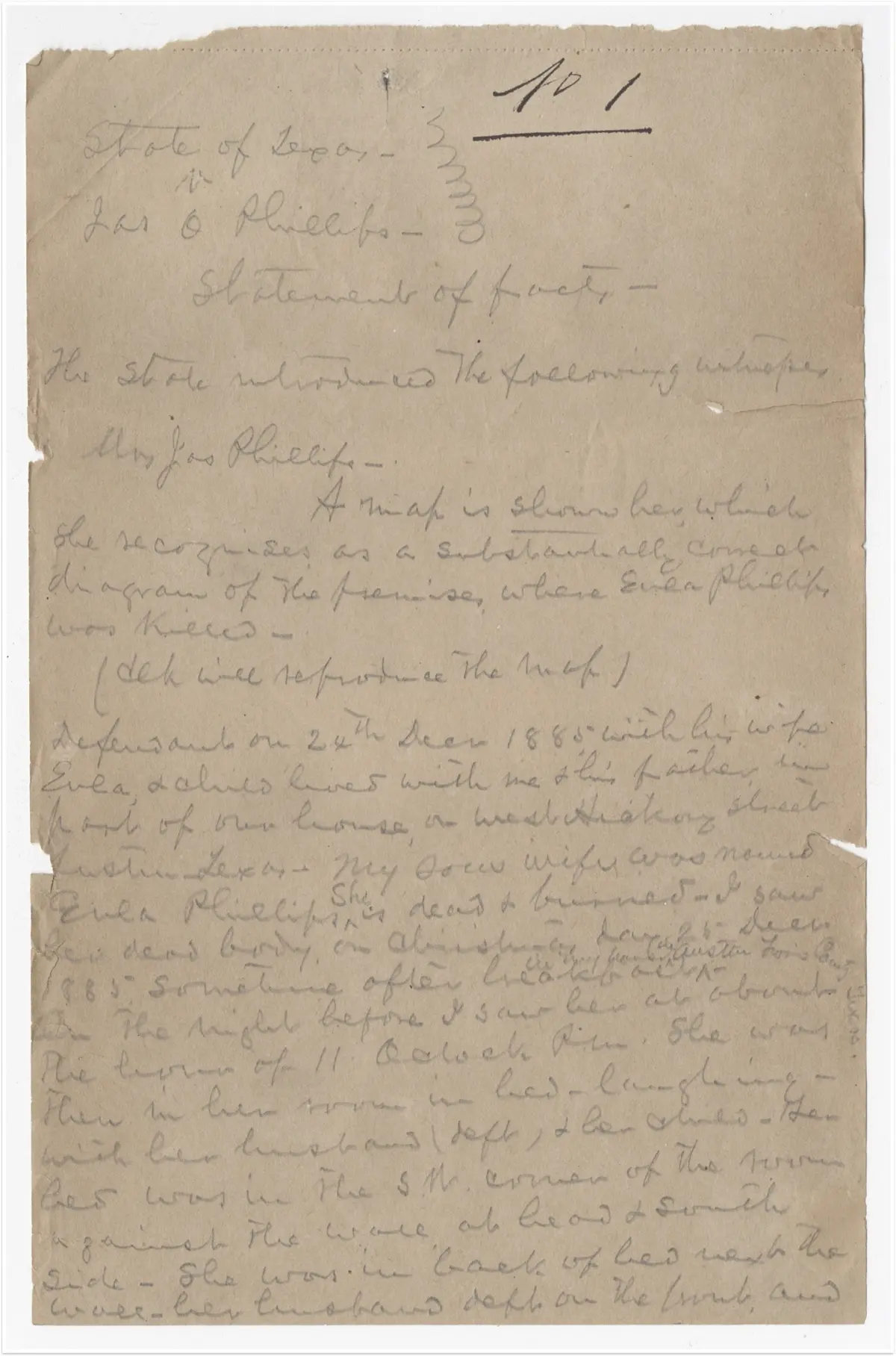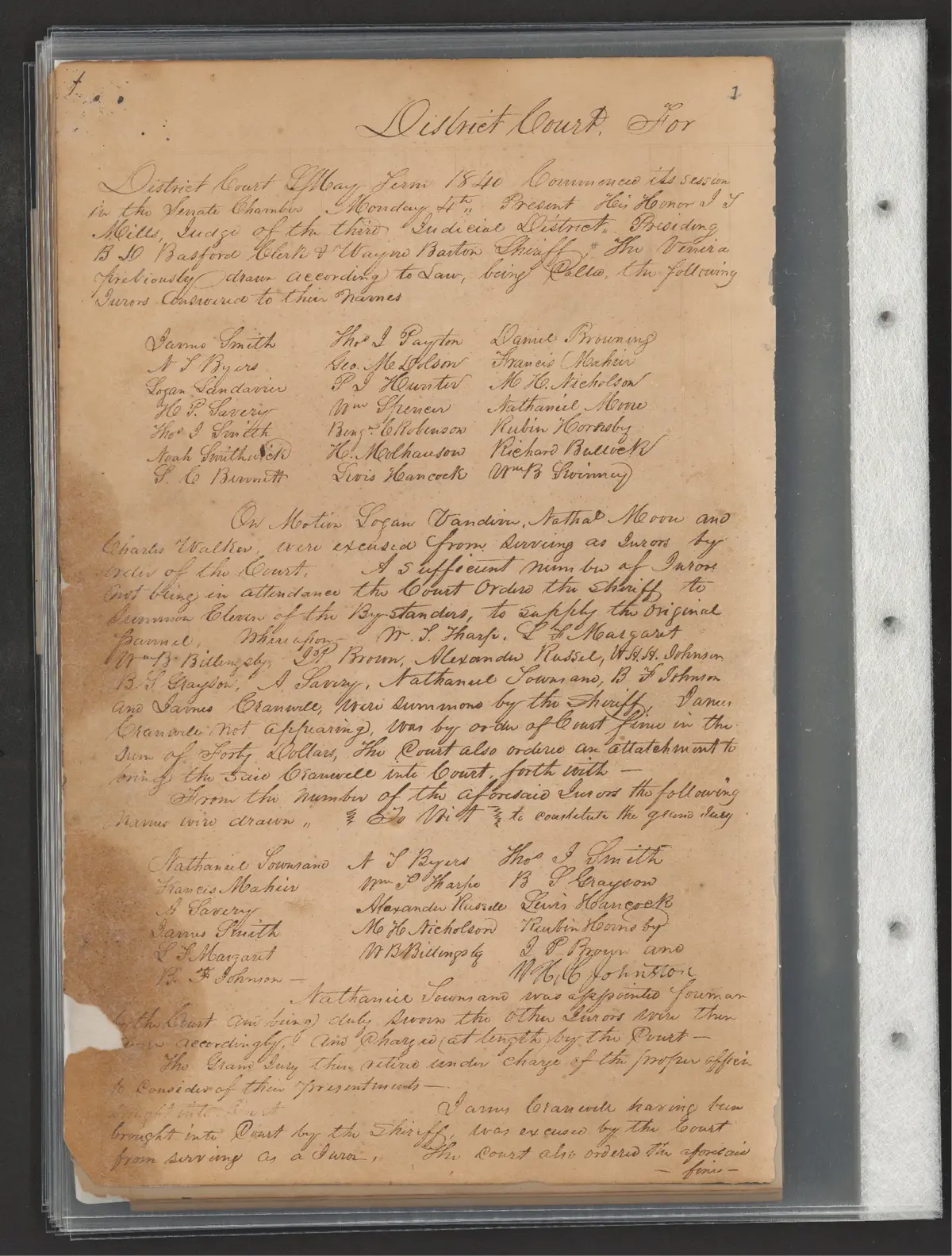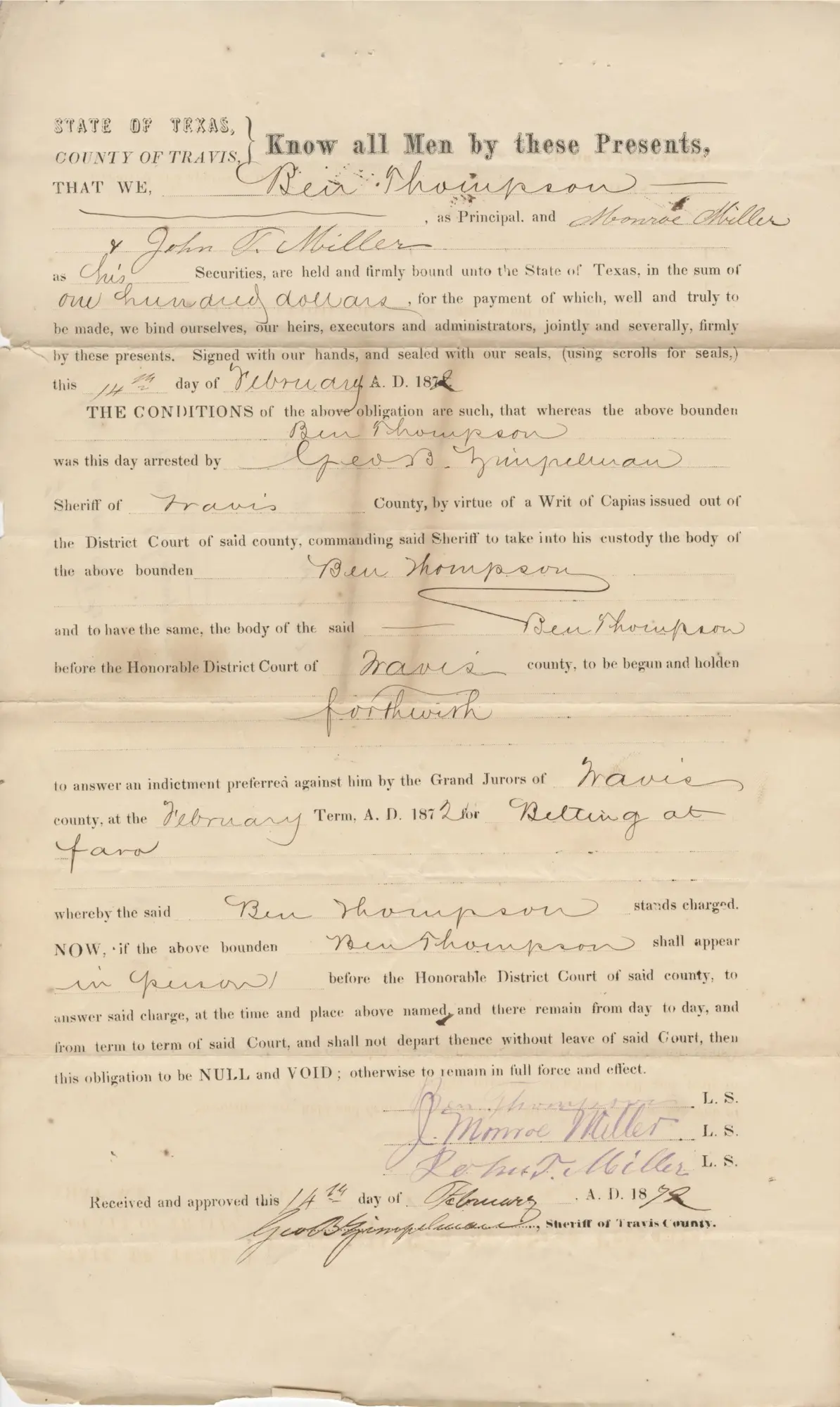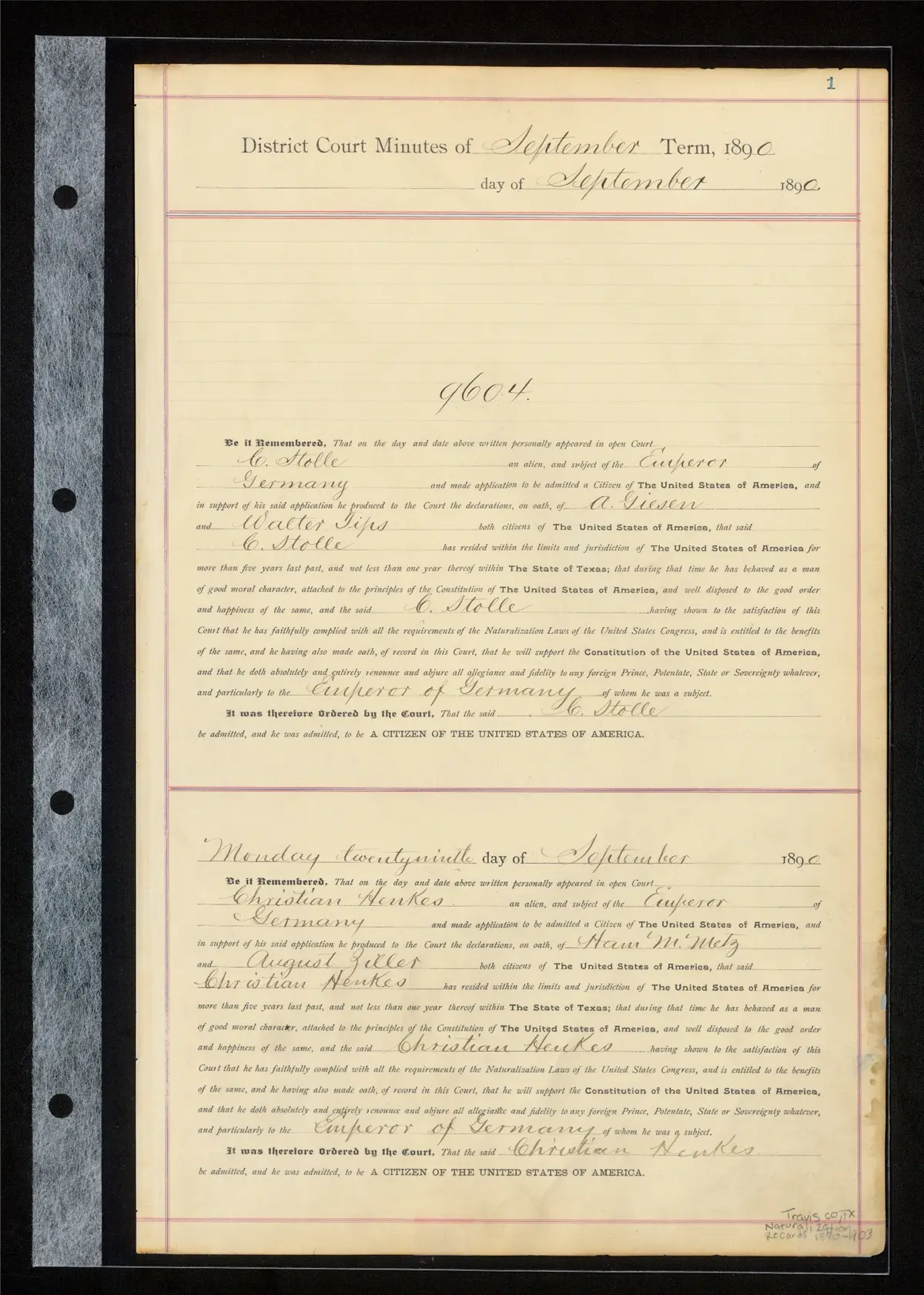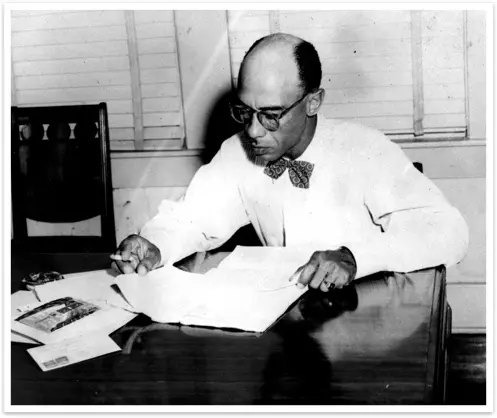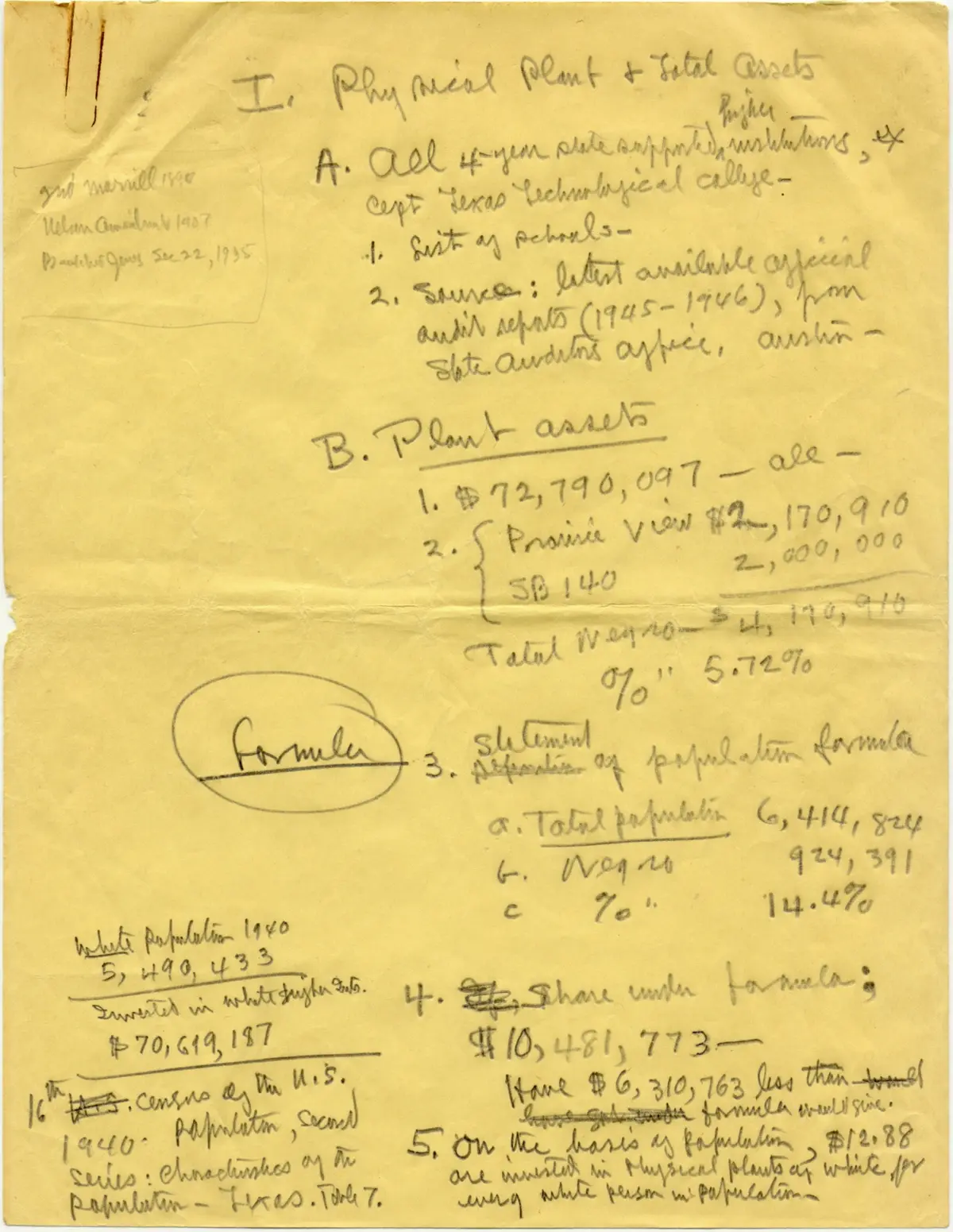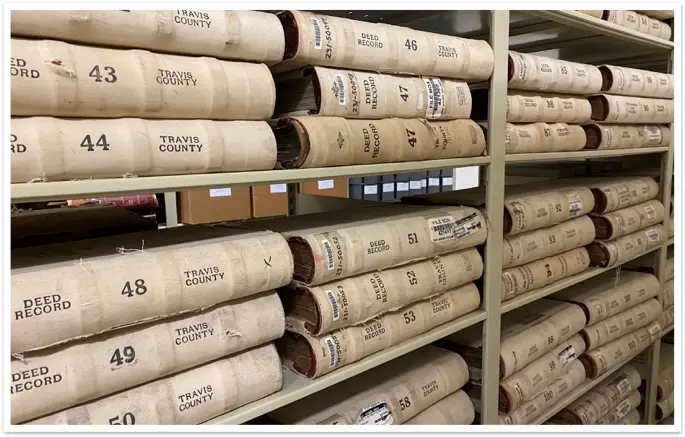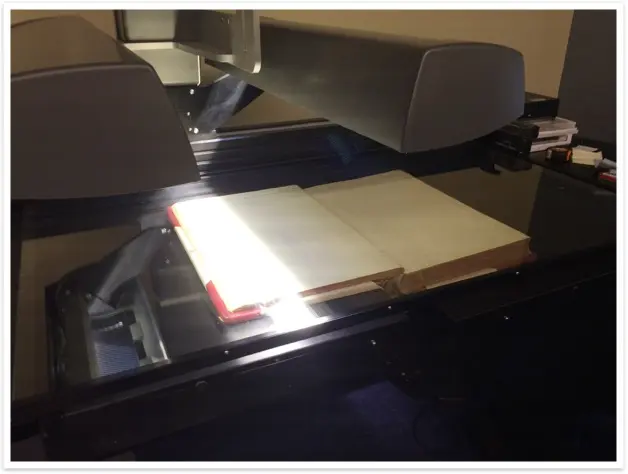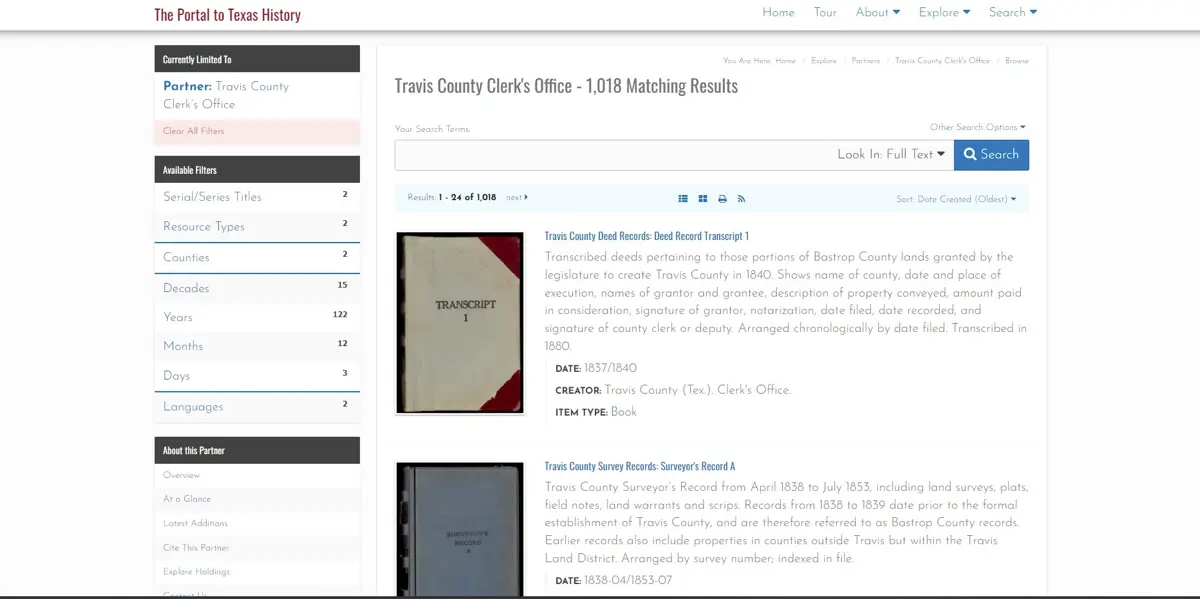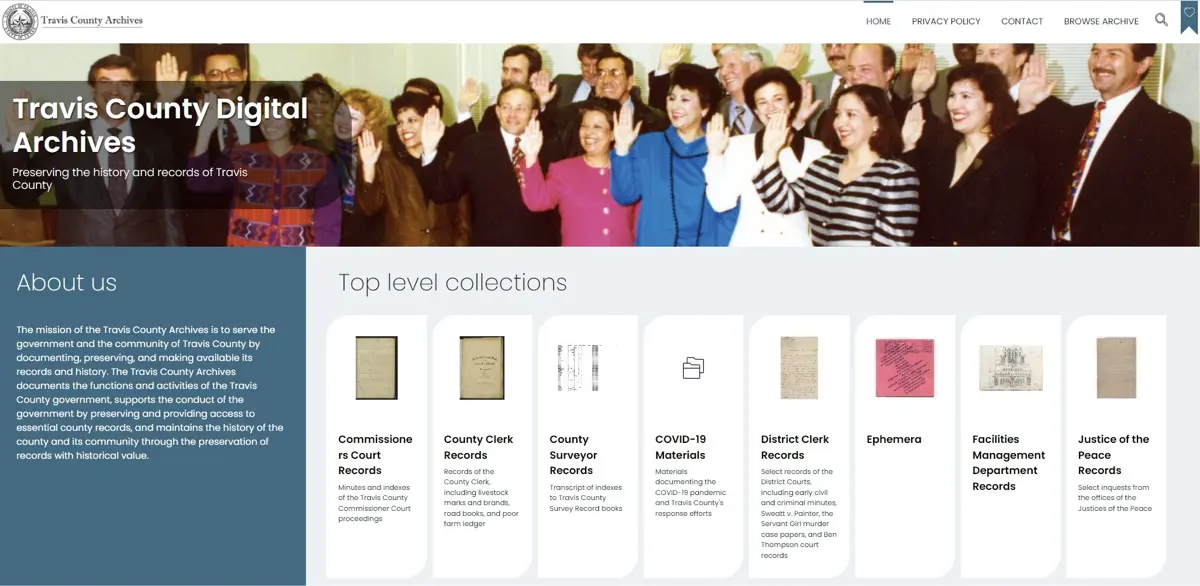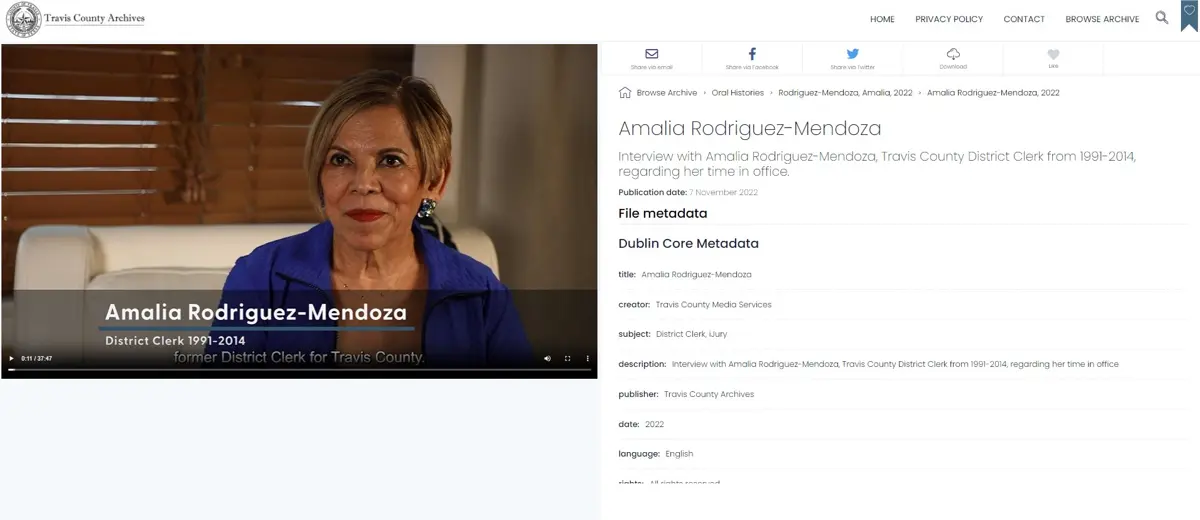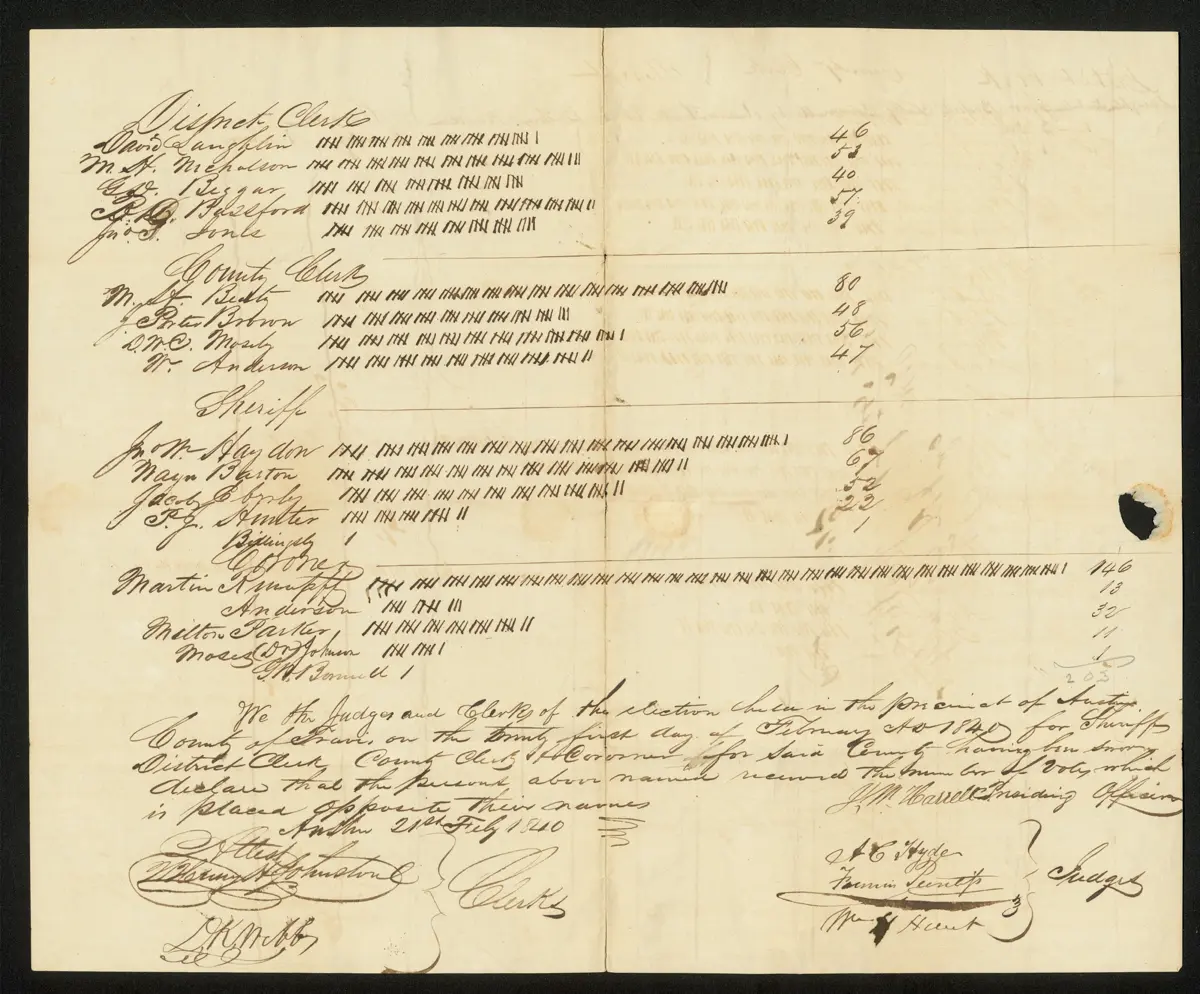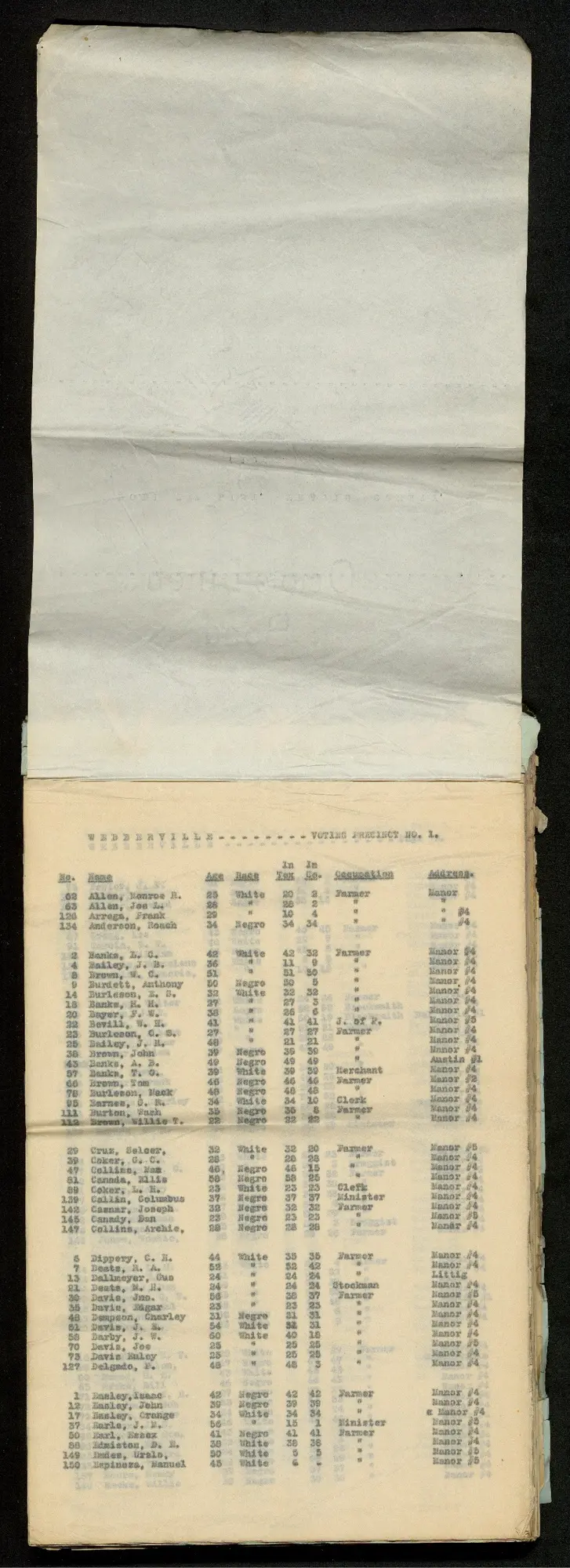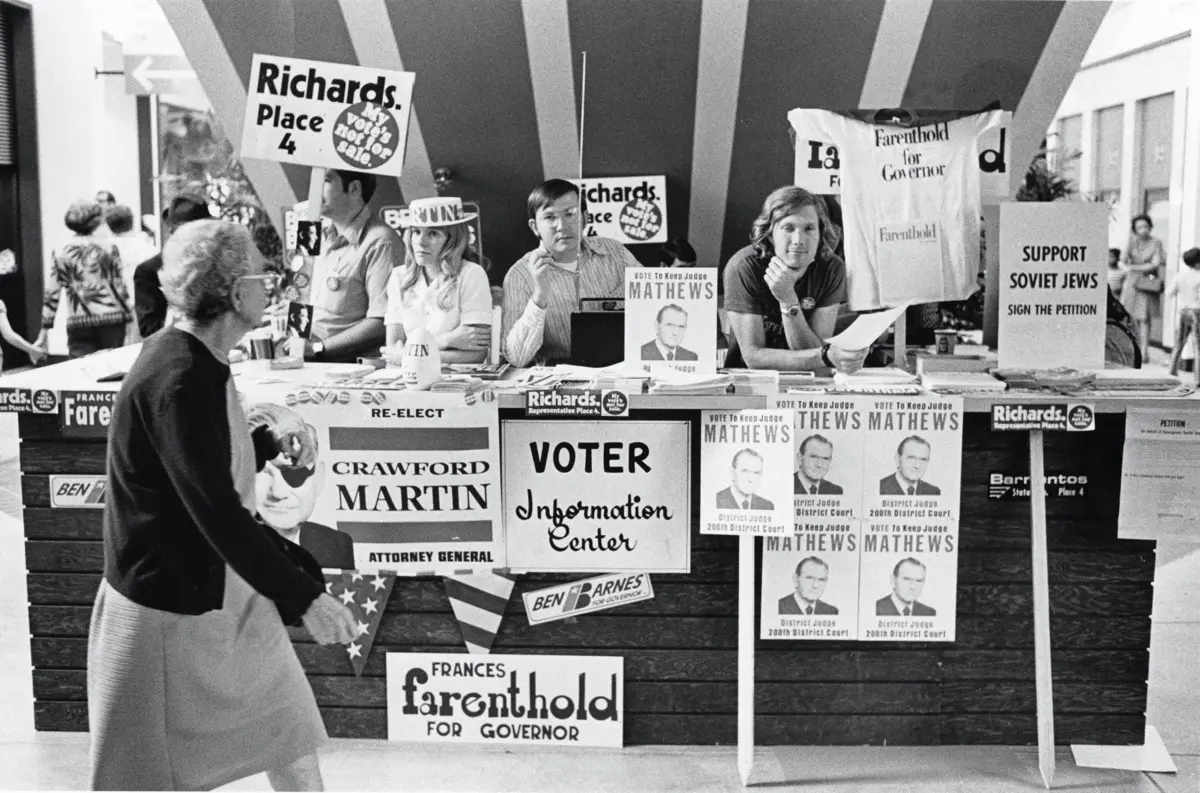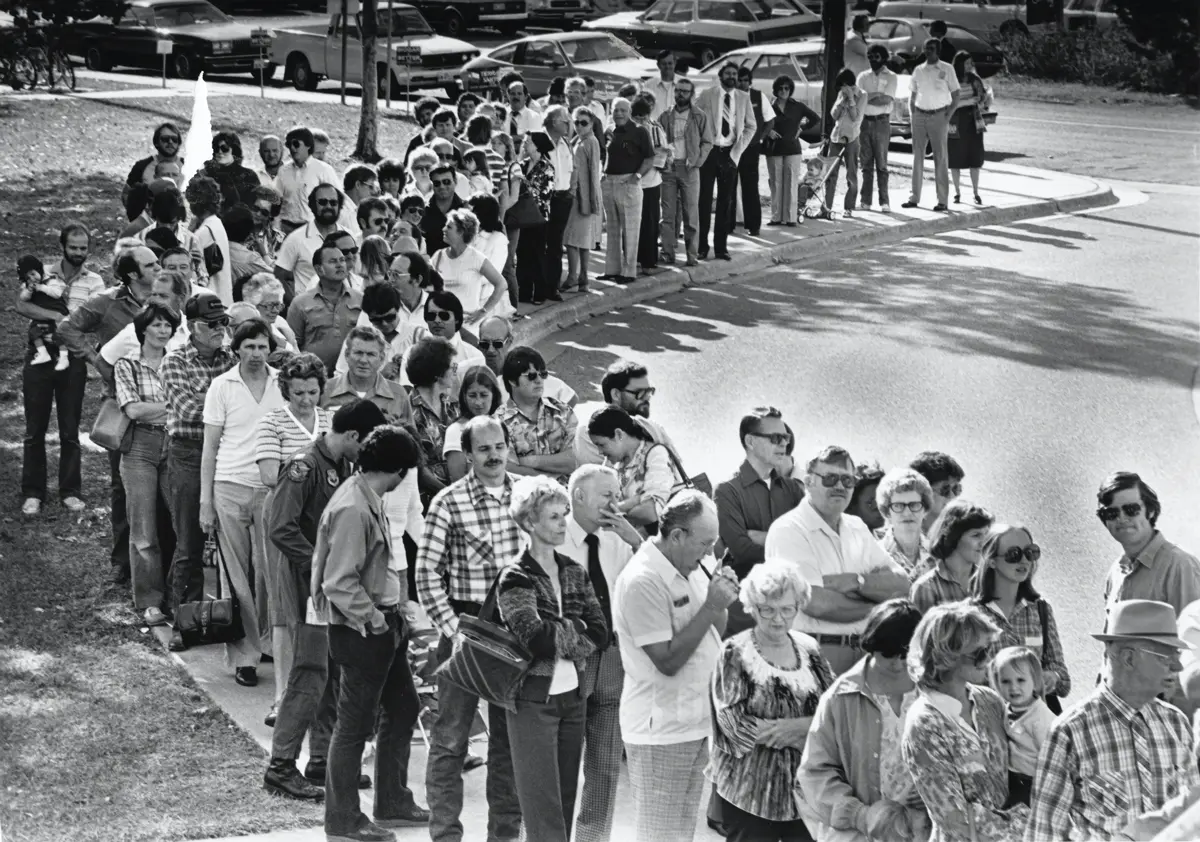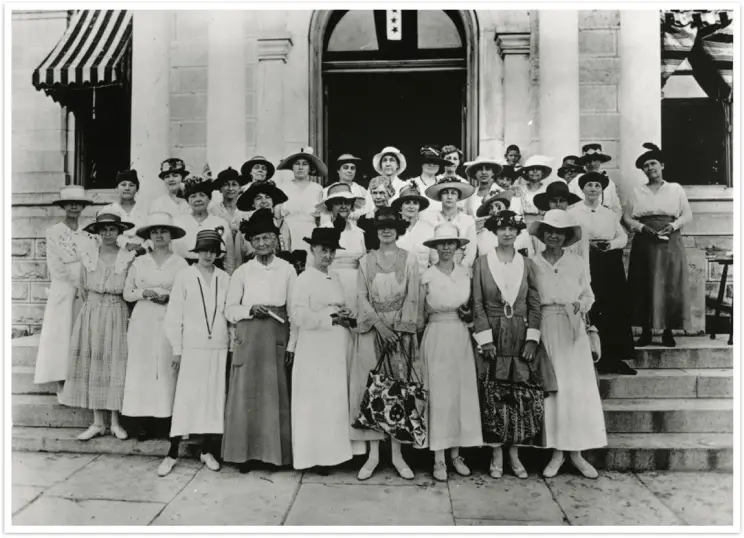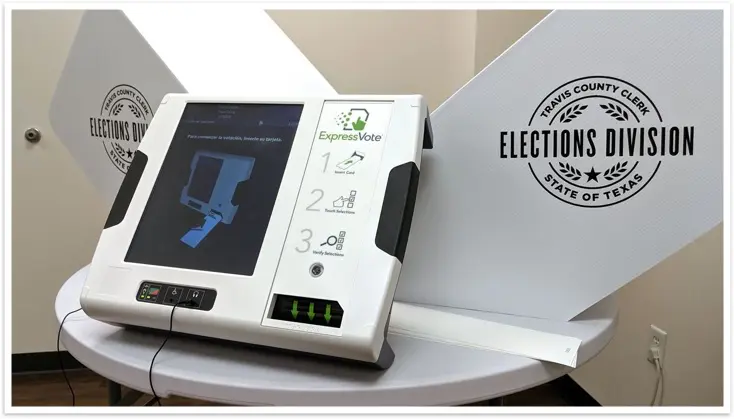History Day 2023
History of the Travis County Clerks and District Clerks
Travis County History Day is an annual event that celebrates the rich history of Travis County. For the 16th annual History Day event, we explored the history of the offices of the Travis County Clerk and District Clerk.
Exhibit Chapters:
I. The Office of the Travis County Clerk
III. The Office of the Travis County District Clerk
IV. Travis County District Clerks
V. Records of the Travis County Clerk
VI. Records of the Travis County District Clerk
VII. Archives and Digitization
VIII. History of Travis County Elections
Clerks of the Courts
Below is a video prepared for the 16th annual History Day event on the history of the offices of the Travis County Clerk and District Clerk. It includes portions of oral histories with Dana DeBeauvoir, Dyana Limon-Mercado, Rebecca Guerrero, Amalia Rodriguez-Mendoza, and Velva Price and a history of the I-Jury System.
Oral Histories
Below are five oral history interviews conducted in 2023 with current and former District and County Clerks.
Dyana Limon-Mercado: https://traviscountyarchives.starter1ua.preservica.com/uncategorized/SO_cf17c792-aeca-4783-9bac-4c278d12cb2e/
Amalia Rodriguez-Mendoza: https://traviscountyarchives.starter1ua.preservica.com/uncategorized/SO_16aaf9d7-9356-4c0d-9681-18c791bb1ddb/
Dana DeBeauvoir: https://traviscountyarchives.starter1ua.preservica.com/uncategorized/SO_5897b48e-9856-4094-909a-712b4214e414/
Rebecca Guerrero: https://traviscountyarchives.starter1ua.preservica.com/uncategorized/SO_413ecc4d-4373-4d3f-bf35-6aa3bbdaa2c5/
Velva Price: https://traviscountyarchives.starter1ua.preservica.com/uncategorized/SO_c3d8bff2-c5dd-4197-8598-6da39e9cd131/
The Office of the Travis County County Clerk
The County Clerk’s office has been in existence since 1836, superseding the office of escribano of Spanish and Mexican Texas, which served as the clerk of court and notary public in Spanish municipalities.
The County Clerk was a statutory office during the days of the Republic of Texas and early statehood. In 1866, it was elevated to constitutional status. The office of Travis County Clerk has existed since the county’s formation in 1840, with the exception of 1870-1876, when the office was abolished and the duties assumed by the District Clerk.
The roles and responsibilities of the County Clerk are many; in fact, County Clerks in Texas perform functions that are usually divided among two or more officials in other states. The Travis County Clerk is the county recorder, clerk to the County Courts at Law, clerk to the Commissioners Court, and the elections administrator.
As the county recorder, the County Clerk files and records a wide variety of documents, including birth and death certificates, marriage licenses, real estate documents, subdivision maps and plats, military records, and even cattle brands. The County Clerk also handles probate records, mental and chemical dependency proceeding records, business records, election records, and bond and oath records of elected and appointed officials.
Travis County Clerks
Washington Anderson
M.C. Hamilton
James C. Harrelson
Muhlenberg H. Beaty
Alexander Coleman
Anderson J. Harrell
Ashford B. McGill
James M. Swisher
James T. McLaurin
Joel Miner
Aaron F. Boyce
Elbridge Perry
Frank Brown
J.G. Wheeler
August F. Otto
A.R. Morris
Frank Brown
John W. Hornsby
Joe Corwin
Paul M. Deats
Fred C. Malone
Marion W. Fowler
Emilie Limberg
Doris Shropshire
Dana DeBeauvoir
Rebecca Guerrero
Dyana Limon-Mercado
1840
1840
1840
1840-1841; 1841-1844
1841
1844-1846
1846-1855
1856-1857
1858-1861
1861-1863
1864-1865
1865
1865
1866
1867-1870
1870-1873
1876-1893
1894-1901
1902-1907
1908-1915
1915-1955
1933
1934-1969
1970-1986
1987-2022
2022
2023-present
Office of the Travis County District Clerk
The office of the District Clerk has been included in every Texas Constitution since the days of the Republic of Texas. The first Travis County District Clerk began serving in 1840.
The District Clerk is custodian of all records of cases heard in the District Courts, the principal trial courts in Texas. Even though the District Courts are state offices, they have become an integral part of county government. The District Courts hear many types of cases, including felony criminal, family, juvenile, delinquent tax, and greater value civil cases. The District Clerk is the official recorder, registrar and custodian of all court pleadings, instruments and papers that are part of any District Court case. Currently, the Travis County District Clerk serves 12 civil District Courts and 9 criminal District Courts.
The District Clerk is also in charge of the jury selection process and acts as a liaison between jurors and the courts. This responsibility includes summoning, selecting, swearing in and impaneling both petit and grand juries for the District Courts. The Travis County District Clerk also coordinates all jury matters for the City of Austin.
A significant number of miscellaneous duties are assigned to the District Clerk, including accepting passport applications, taking depositions of witnesses, and administering oaths and affirmations. The District Clerk also gathers data and reports to many state and local agencies, which assists in determining the proper operation of the courts, the effectiveness of the statutes, and the need for changes.
B.D. Bassford served as the first Travis County District Clerk in 1840. Frank Brown, who served as District Clerk three separate times, is known for his manuscript entitled Annals of Travis County and the City of Austin, which documents the history of Travis County from 1850-1875. Velva Price, the current District Clerk, has been in office since 2015.
Travis County District Clerks
B.D. Bassford
Alexander Coleman
William Hotchkiss
John Wooldridge
John M. Costley
Frank Brown
Frank H. Coupland
J.G. Wheeler
E.C. Bartholomew
L.B. Collins
A.R. Morris
Ernst Hallman
James P. Hart
D.J. Pickle
S.A. Philquist
George H. Templin
Ben Lee Chote
Helen Sellers
Oscar T. Martin, Jr.
John Dickson
Amalia Rodriguez-Mendoza
Velva Price
1840-1841; 1842-1843; 1846-1849
1841
1843
1844-1845
1850-1853
1854-1864; 1866-1968; 1873-1876
1865
1866
1869
1869
1870-1873
1876-1880
1881-1906
1907-1916
1916-1932
1933-1942
1943-1947
1947-1948
1949-1977
1977-1990
1991-2014
2015-present
Records of the Travis County Clerk
As the county recorder, the County Clerk files and records a wide variety of documents that date from 1840 to the present, many of which must be kept permanently. Documents include vital statistics records, property records, mortgages and liens, business and professional records, bonds and deputations, election records, and a wide variety of assorted records. The County Clerk also maintains the records of the County Courts at Law, including probate, civil and criminal court records, and those of the Commissioners Court.
Vital Statistics Records
Vital statistics records are those that record the important events in human life, such as births, deaths, and marriages. Marriage records date back to the County’s establishment in 1840. The recording of birth and death records was not mandated by the State of Texas until 1903, so there are few birth and death certificates that date prior to this time.
Election Records
Election records include voting records, election returns, and records of candidacy and campaign finance.
Property Records
Property records include those such as deeds, which document the ownership and conveyance of property, and plats, which are maps drawn to scale that show the divisions of a piece of land.
Mortgages and Liens
Mortgage records show how much the owner borrowed on a home or how often the property has been listed for sale. A mortgage lien is a financial claim to your property, which serves as collateral for your mortgage.
Business and Professional Records
Business and professional records include assumed name registers, trademark registers, and power of attorney records.
Bonds, Oaths and Deputations
When an individual takes office, they must be bonded and take an oath of office. Bonds guarantee that an official will comply with the governmental rules and regulations. Oaths of office are affirmations made by an individual before assuming the duties of an office. Deputation records are notices of appointment to perform duties of county officials as deputies.
Records of the County Courts at Law
County Courts at Law are courts with jurisdiction in civil, criminal (Class A and B misdemeanors), probate and appellate matters.
Mental Health Records
Mental health records are those that pertain to mental health cases heard in county court. These include cases involving indefinite and temporary hospitalizations, mental illness, and alcoholic hospitalizations. These records are restricted and require a court order to access.
Civil and Criminal Court Records
Civil and criminal court records kept by the County Clerk include dockets, case papers, and minutes of the county court at law civil and criminal courts.
Probate Records
Probate documents relate to the distribution of a deceased individual’s estate and can include information such as property holdings and values, and land and building locations and descriptions.
Records of the Commissioners Court
The Commissioners Court is the general governing body of the county. It is responsible for overseeing the budgetary and policy making functions of county government, managing county operations, enacting county-wide policies, overseeing the county’s infrastructure, and additional personnel and operating responsibilities, such as financial and law enforcement needs planning, establishing precinct boundaries, and setting employment and benefit policies for the county. Commissioners Court records kept by the County Clerk’s office include records of proceedings, financial records, road records, and water district records.
Assorted Records
The County Clerk files and keeps a wide variety of miscellaneous records, such as military discharge records, naturalization records, tuberculosis records, County Superintendent of School records, County Surveyor records, convict labor records, livestock records, and poor farm records. Many of these materials are no longer actively recorded by the Clerk’s office, but they continue to be kept by the office due to their historical value.
Records of the District Clerk
The District Clerk is the office of record for all proceedings heard in the District Courts, the principal trial courts in Texas.
Civil Court Records
Civil cases heard in the District Court include cases involving title to land, election contest cases, and civil matters in which the amount of money or damages involved is $200 or more.
Criminal Court Records
The District Courts have jurisdiction in felony criminal cases.
Divorce Records
Divorces are recorded by the District Clerk’s office in the county where the divorce was filed.
Adoption Records
District Courts preside over adoption proceedings. Adoption records are sealed and require a court order to access.
Naturalization Records
Naturalization records document the process by which an alien becomes an American citizen.
Jury Records
Jury records document the summoning, selecting, swearing in and impaneling both petit and grand juries for the District Courts
Miscellaneous Records
The District Clerk maintains a variety of licenses of physicians, chiropodists, and chiropractors.
Landmark Cases
A landmark case is a court case that is studied because it has historical and legal significance. The most significant cases are those that have had a lasting effect on the application of a certain law, often concerning individual rights and liberties. Landmark cases may originate in District Courts.
Sweatt v. Painter
On February 26, 1946, Heman Marion Sweatt, an African American, was denied admission to the University of Texas School of Law, as state law required segregation by race. The Court of Civil Appeals would later write that “he possessed every essential qualification for admission, except that of race, upon which ground alone his application was denied.”
Mr. Sweatt filed a lawsuit in Travis County against UT President T.S. Painter on May 16, 1946. Judge Roy C. Archer of the 126th District Court, recognizing that the State had no “separate but equal” facility for a law school, gave the State of Texas six months to “establish a law school for Negroes substantially equivalent” to the University of Texas School of Law, and officials of the University of Texas complied. Judge Archer concluded that the new school offered the petitioner “privileges, advantages, and opportunities for the study of law substantially equivalent at the University of Texas.”
Mr. Sweatt’s legal team appealed the decision, and ultimately, in 1950, the Supreme Court of the United States disagreed with the lower court. While not yet denouncing “separate but equal” as the constitutional policy of the United States, the Court concluded that separate professional schools were inherently unequal. Sweatt laid the groundwork for the Court’s decision in 1954’s Brown v. Board of Education of Topeka. In Brown, the Court finally concluded that, although the physical facilities may be equal, segregation of children in public schools solely on the basis of race deprives the children of equal education opportunities. Sweatt gave the court the logic that enabled it to strike down segregation as the law of the land by providing an interim step in the process of legal analysis. It is not an overstatement to say that Sweatt v. Painter began the process of desegregating America’s schools.
Archives and Digitization
The Travis County Archives preserves records of both the County and District Clerks. Records dating as far back to the county’s establishment can be found in the Archives, which is located at 5555 Airport Boulevard.
In the past decade, digitization of historical records has become a priority of the Archives’ program, and Archives staff has assisted in the digitization of records for both the County and District Clerks.
In 2015, a project began in collaboration with the Travis County Clerk to digitize and preserve the office’s historic and permanent records, starting with the oldest, which date from 1840. The reason for scanning was two-fold: to make the records more readily available and accessible in a digital format to patrons, researchers, and the general public; and, to protect and preserve these historical and often-times fragile bound volumes with high reference rates.
Scanning is completed in the Archives using a high-resolution book scanner. The resulting images are sent to the Portal to Texas History, a digital gateway that provides access to historical documents and images from archives and other institutions throughout Texas. The images are high quality and can be accessed and downloaded for free at any time. The original digital files are preserved according to best practices using Preservica, a cloud-based storage system for preservation of digital assets.
As of the summer of 2023, over 1,300 County Clerk books have been scanned, spanning over 100 years of material. Over 1,000 of these books have been placed online on the Portal to Texas History.
In 2023, the Archives also began digitizing materials for the District Clerk’s office. Like the work with the County Clerk’s office, the earliest District Clerk records are being digitized first, and work will progress forward through the decades. Images are accessible on the Archives’ Preservica site, and will later be added to the Portal to Texas History.
The efforts of the Travis County Clerk and District Clerk to digitize and make their records more easily accessible are exemplary, and records are ensured to be preserved for the future.
History of Travis County Elections
In Texas, the County Clerk plays a vital role in conducting countywide elections. Over the years, the landscape of voting has changed radically, including method, eligibility, and volume of voters. Since 1840, it has been the Travis County Clerk’s job to adapt to these changes and provide fair and efficient elections that meet state and local requirements.
The first election of Travis County officials was held in February of 1840, at which time the population was reported to be 856. Ballots were cast on scraps of paper placed into ballot boxes. Eligibility to vote was determined by the Constitution of the Republic of Texas. At that time, only white and Hispanic men over the age of 21, who were citizens of the Republic of Texas, were eligible to vote. African Americans, Native Americans, and women were excluded.
The 15th Amendment, passed by Congress in 1869 and ratified in 1870, granted African American men the right to vote for the first time.
Poll taxes were fees citizens paid in order to vote. The poll tax was meant to discourage people from voting, particularly African-Americans, Tejanos and poor whites. Voters had to pay the tax before voting and bring the receipt to the ballots as proof. Politicians justified these laws by claiming that implementing a poll tax would regulate elections, prevent voter fraud, and ensure a better class of voters.
The Texas Senate attempted to repeal the poll tax in 1949 and 1963 but failed both times. The state ended poll taxes for local and state elections with a 1966 resolution, but it didn’t formally approve the amendment until 2009, when Rep. Alma Allen, a black Democrat from Houston, sponsored a resolution to ratify it.
In 1918, primary elections were opened to Texas women for the first time. In March of 1918, a bill was passed by the Texas Legislature to permit women to vote in primaries. The law did not go into effect for 90 days, giving women only 17 days in which to register to vote before the July primary; in those 17 days 386,000 Texas women registered to vote. In 1919, the Texas Legislature ratified the 19th Amendment to the U.S. Constitution, and Texas women were officially given the right to vote.
Today the population of Travis County totals over 1.3 million people. The County Clerk is tasked with conducting special, primary, and general elections for Travis County and governmental entities throughout the area.
Travis County’s current voting system combines touch screen technology with a paper ballot backup, a far cry from the handwritten paper ballots of the 1840s, and the punch cards and early voting machines that would follow. Travis County fully shifted from paper ballots to electronic voting in the early 2000s.
